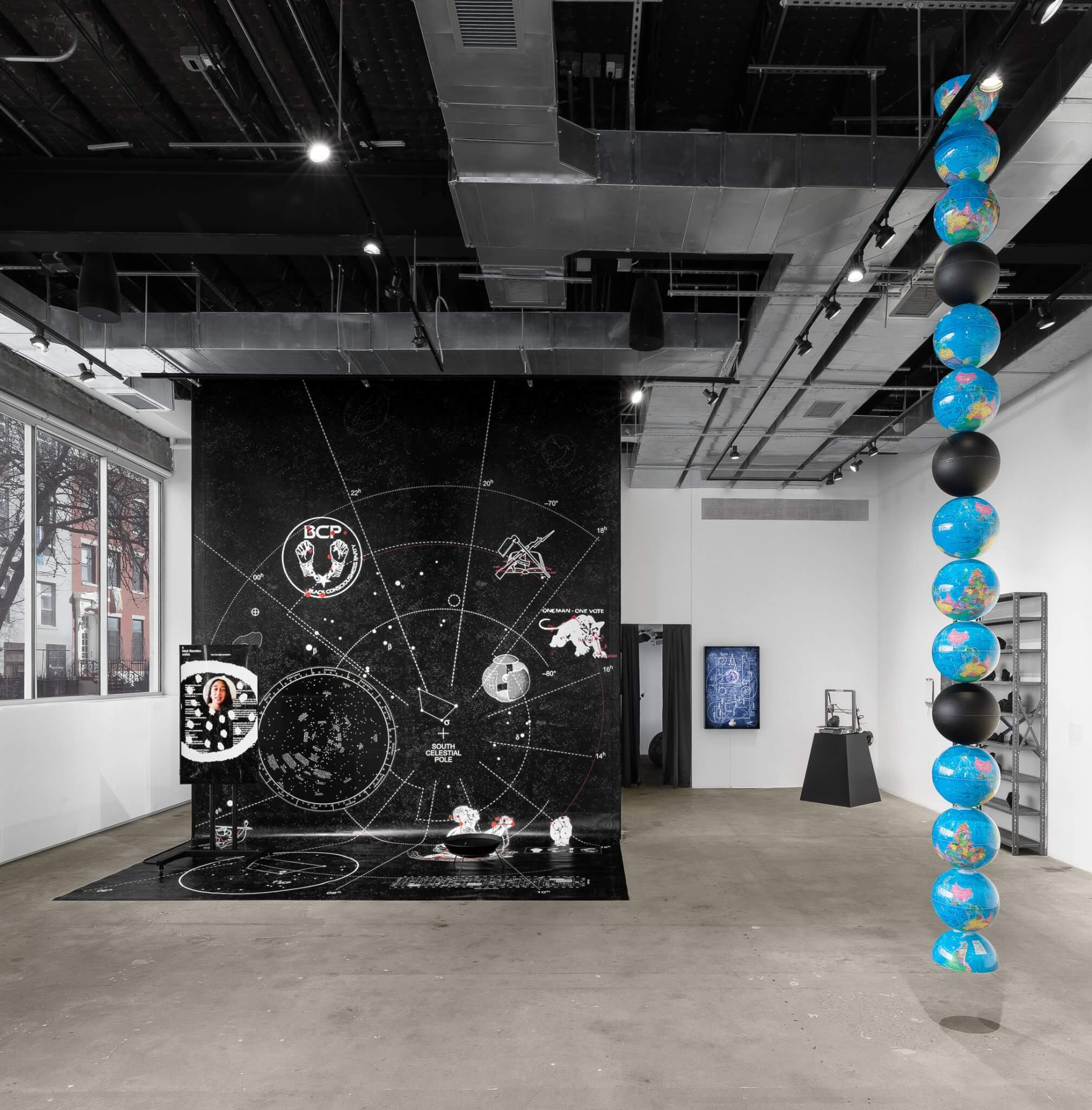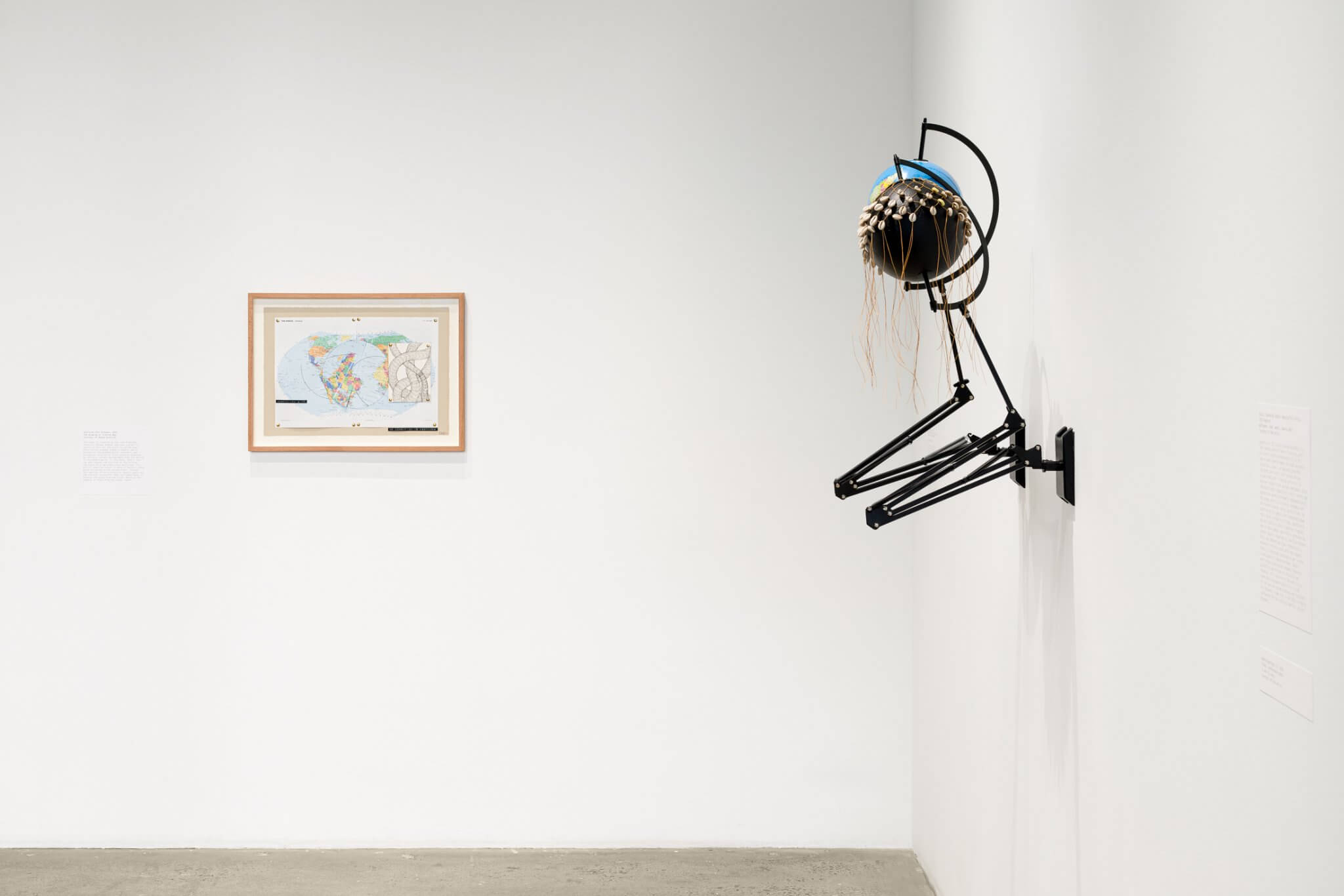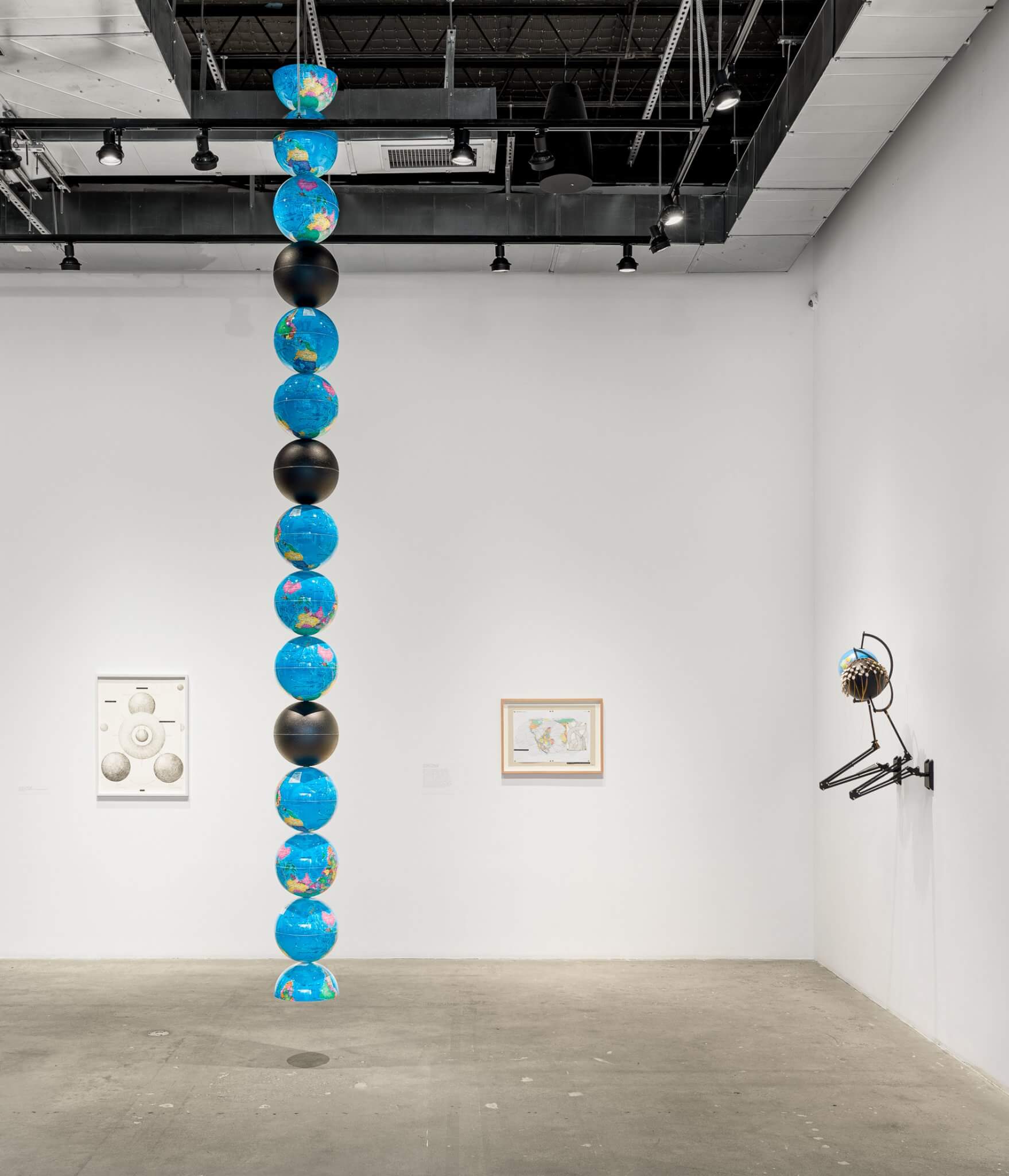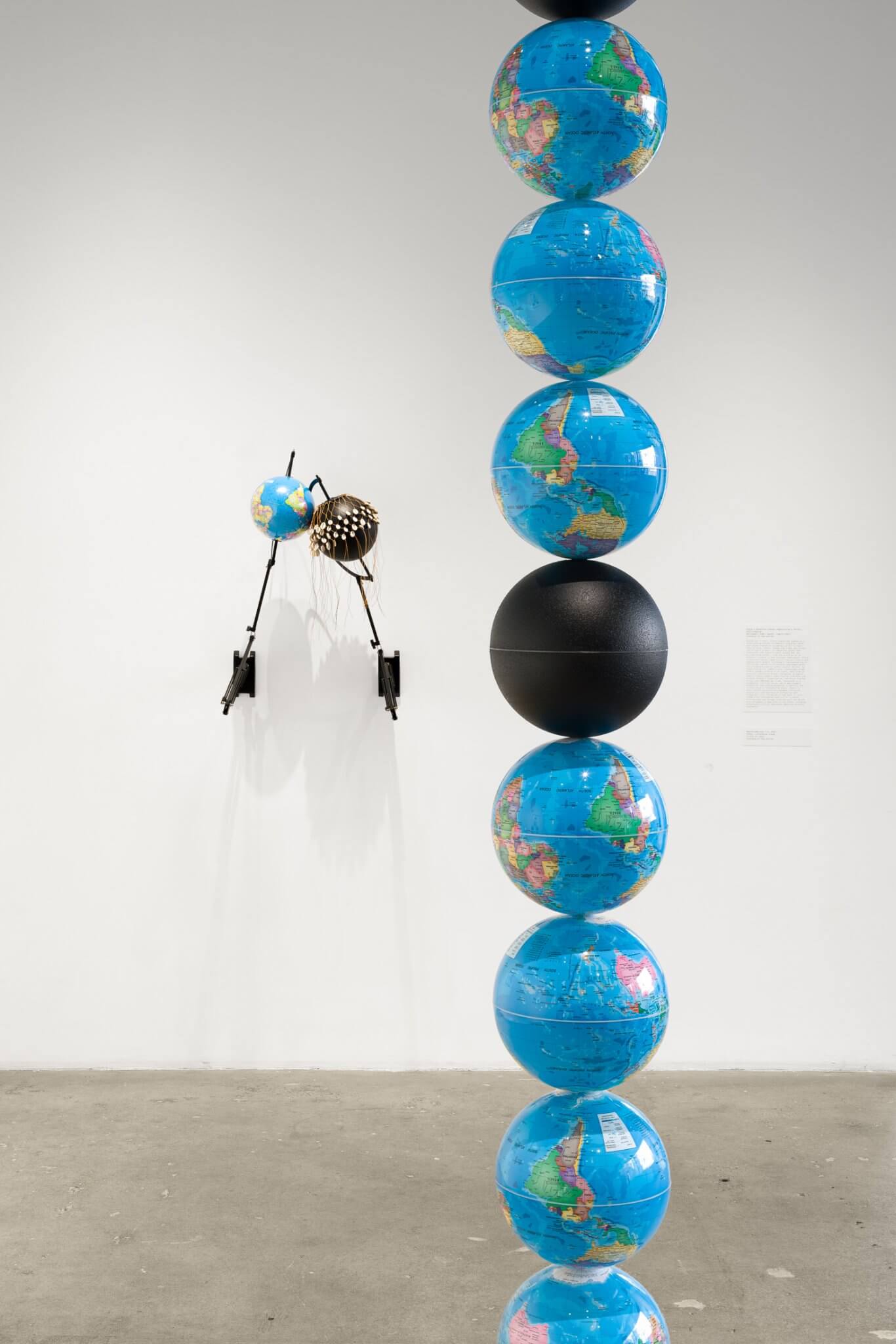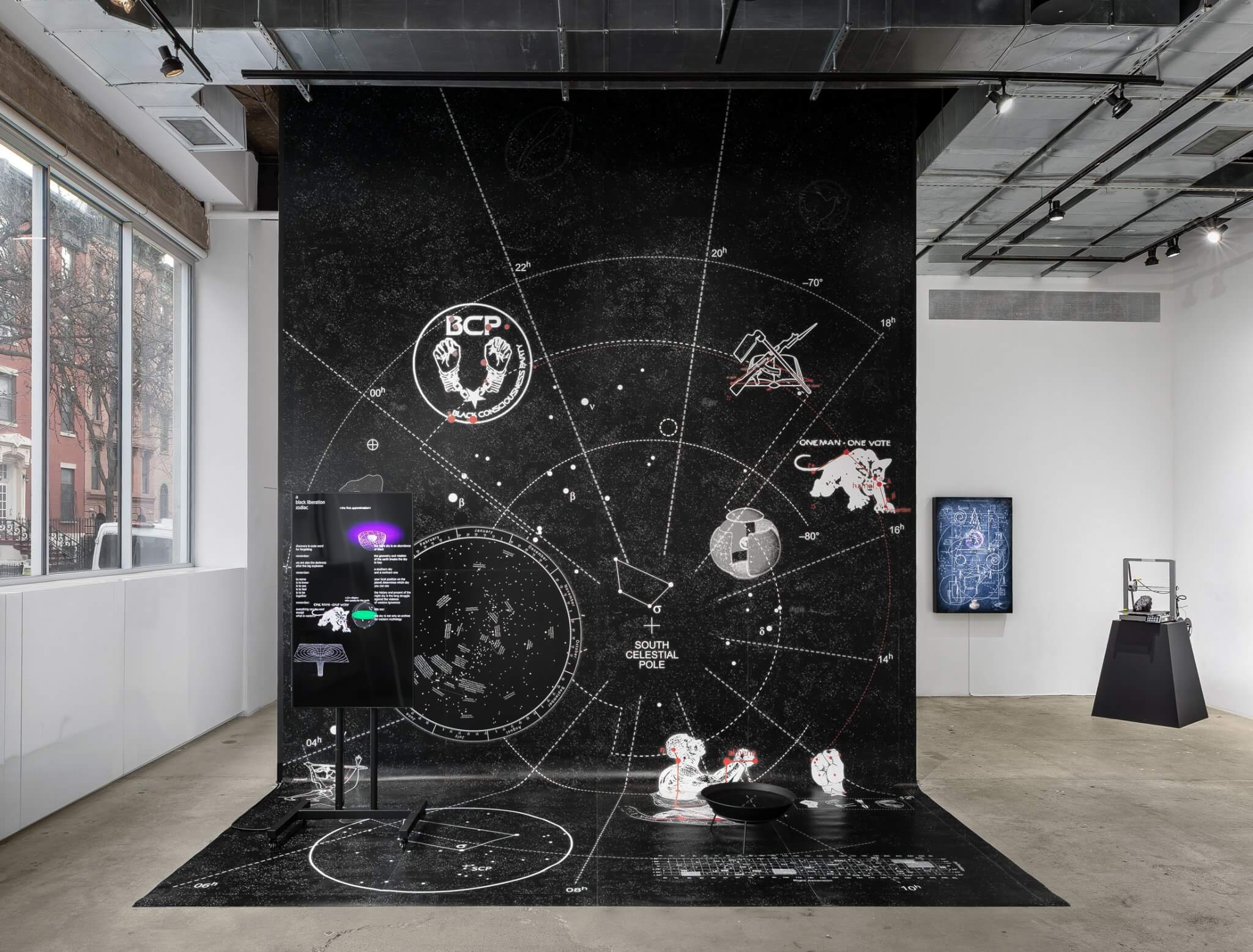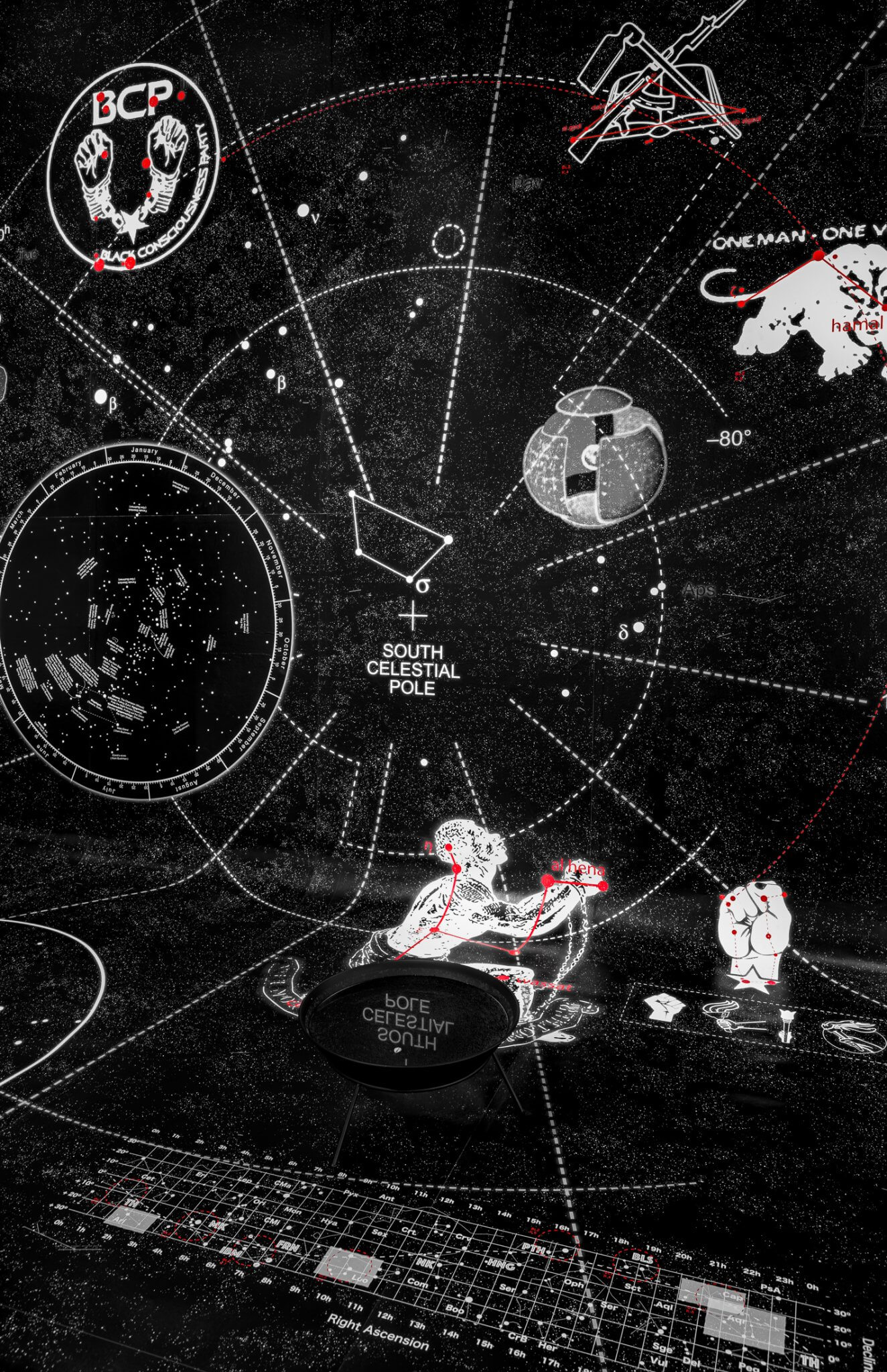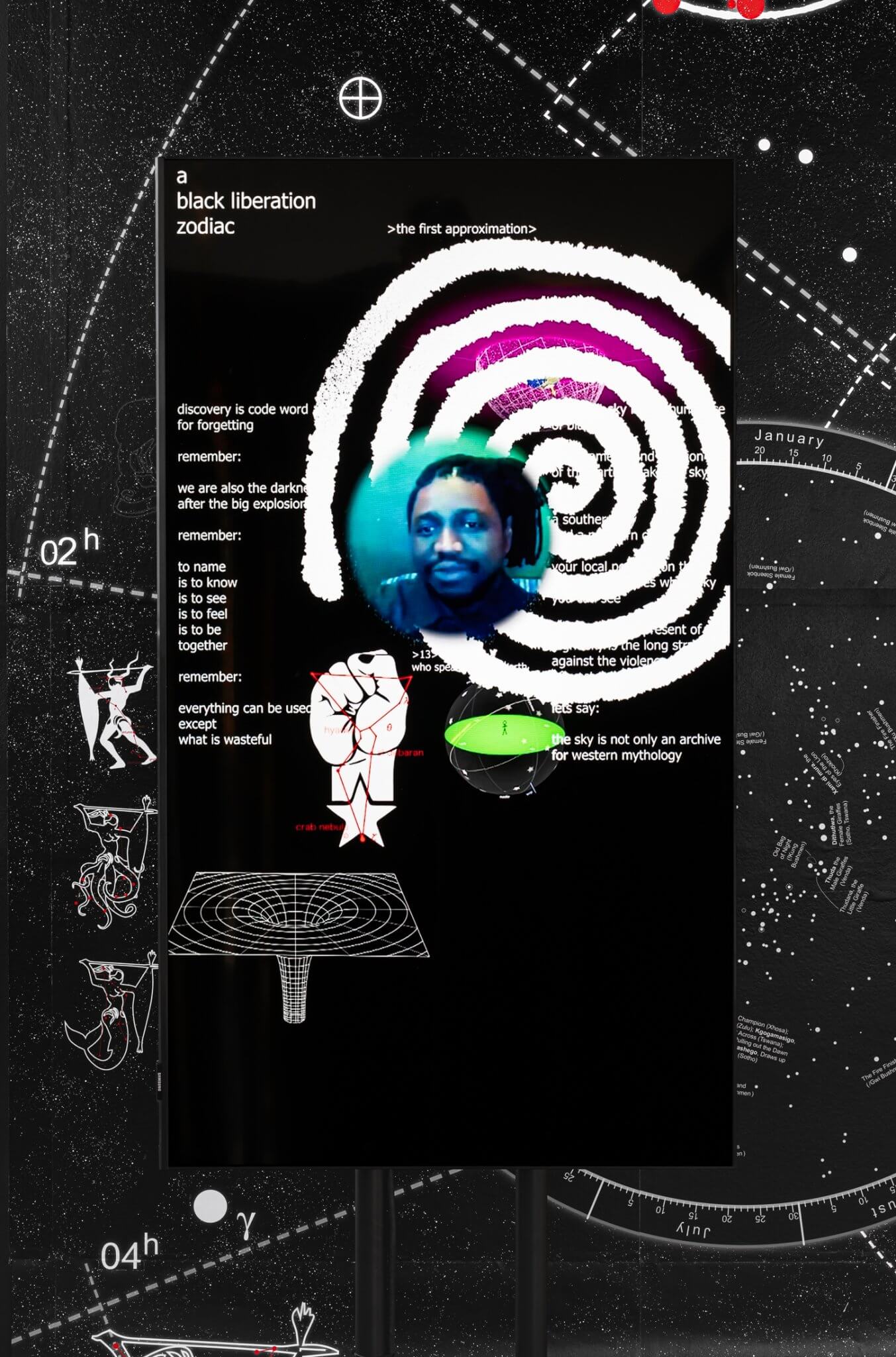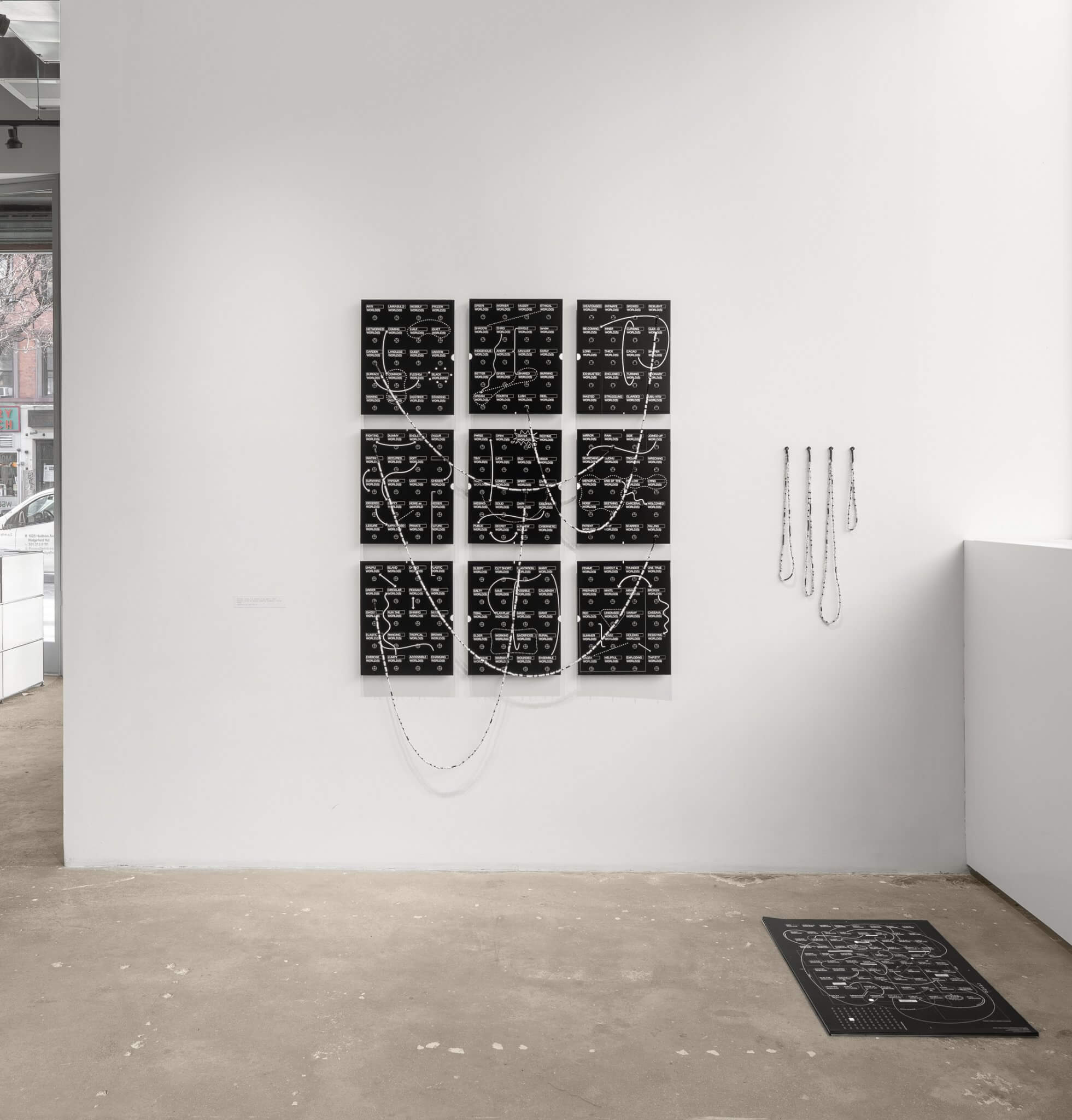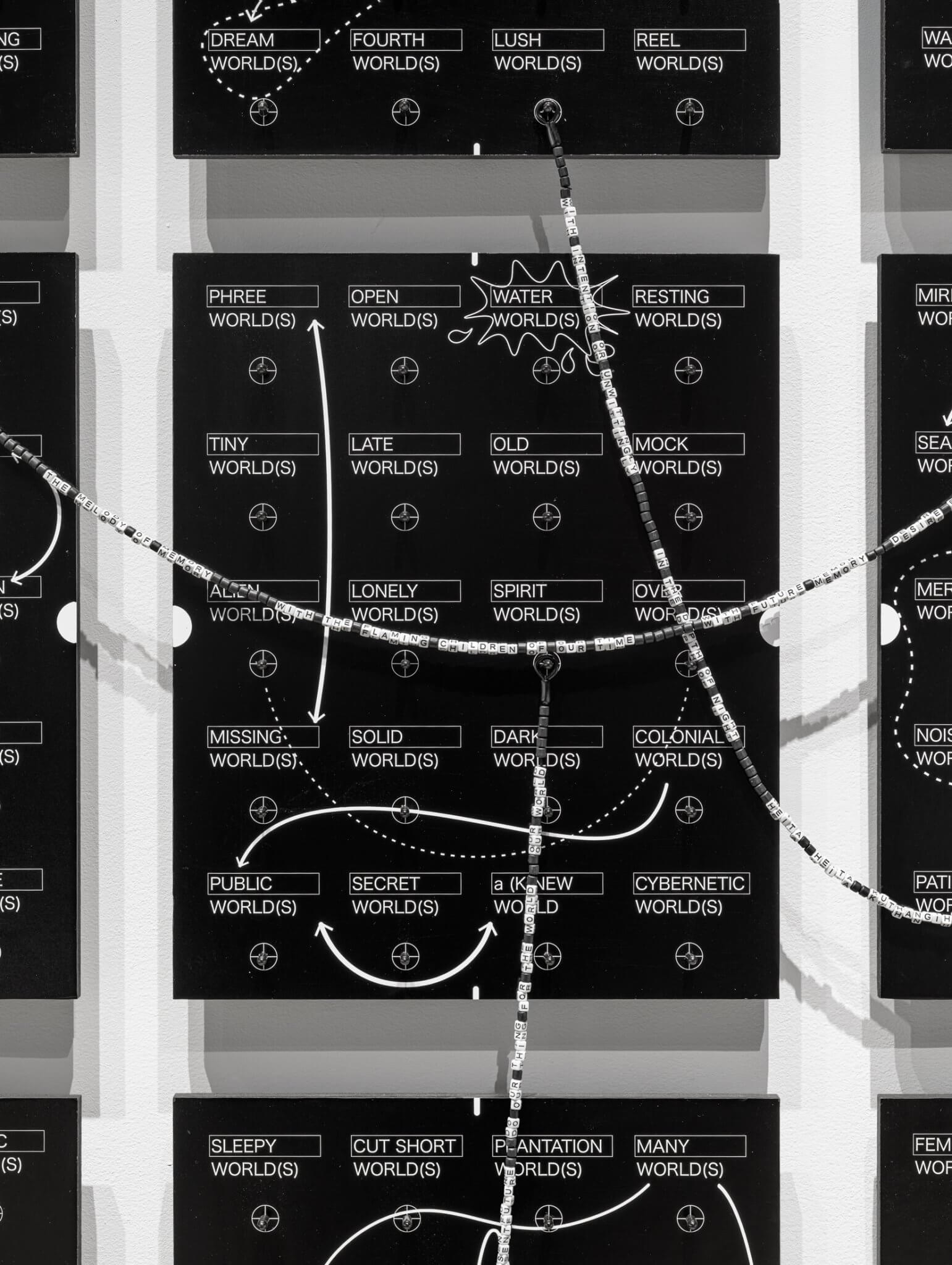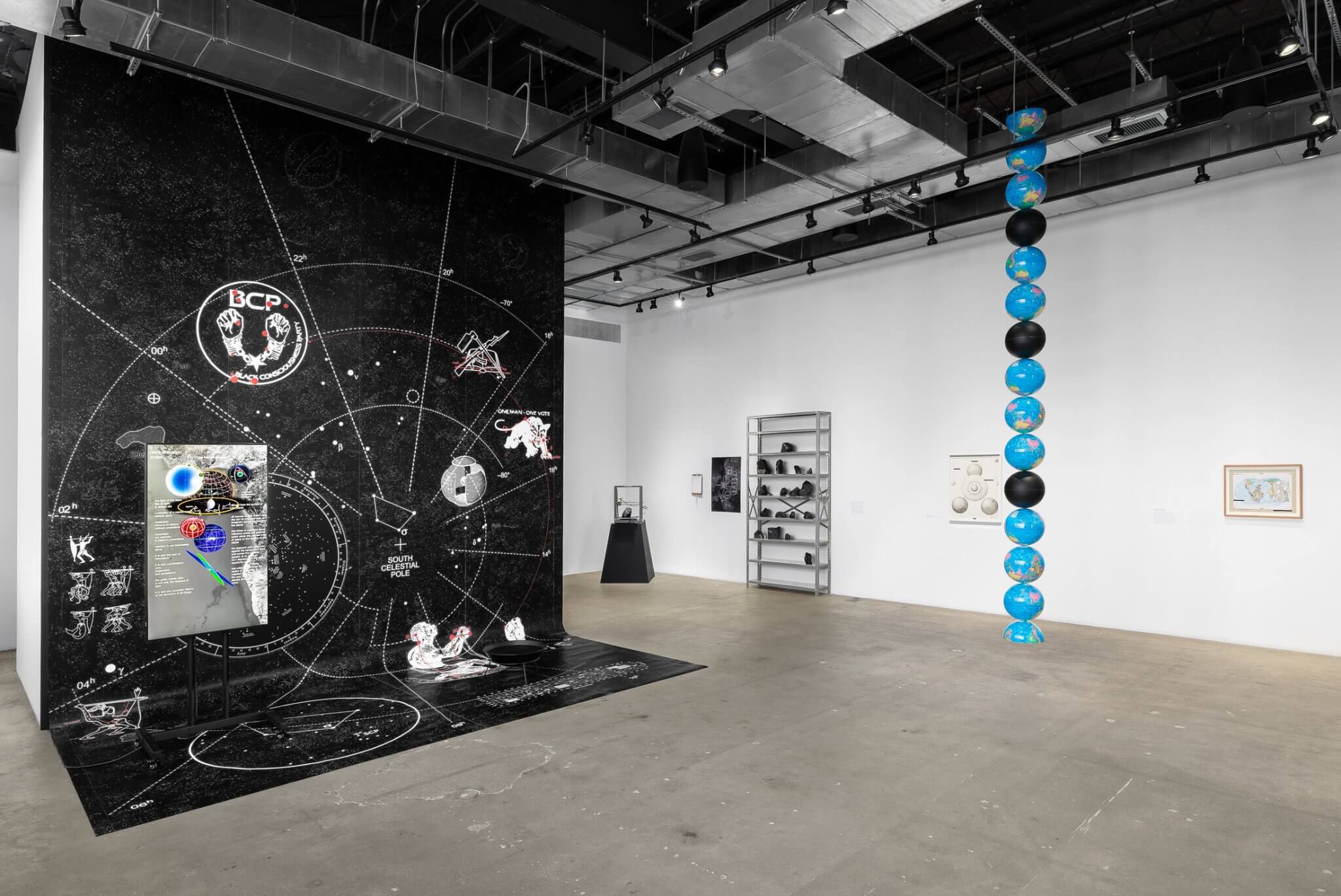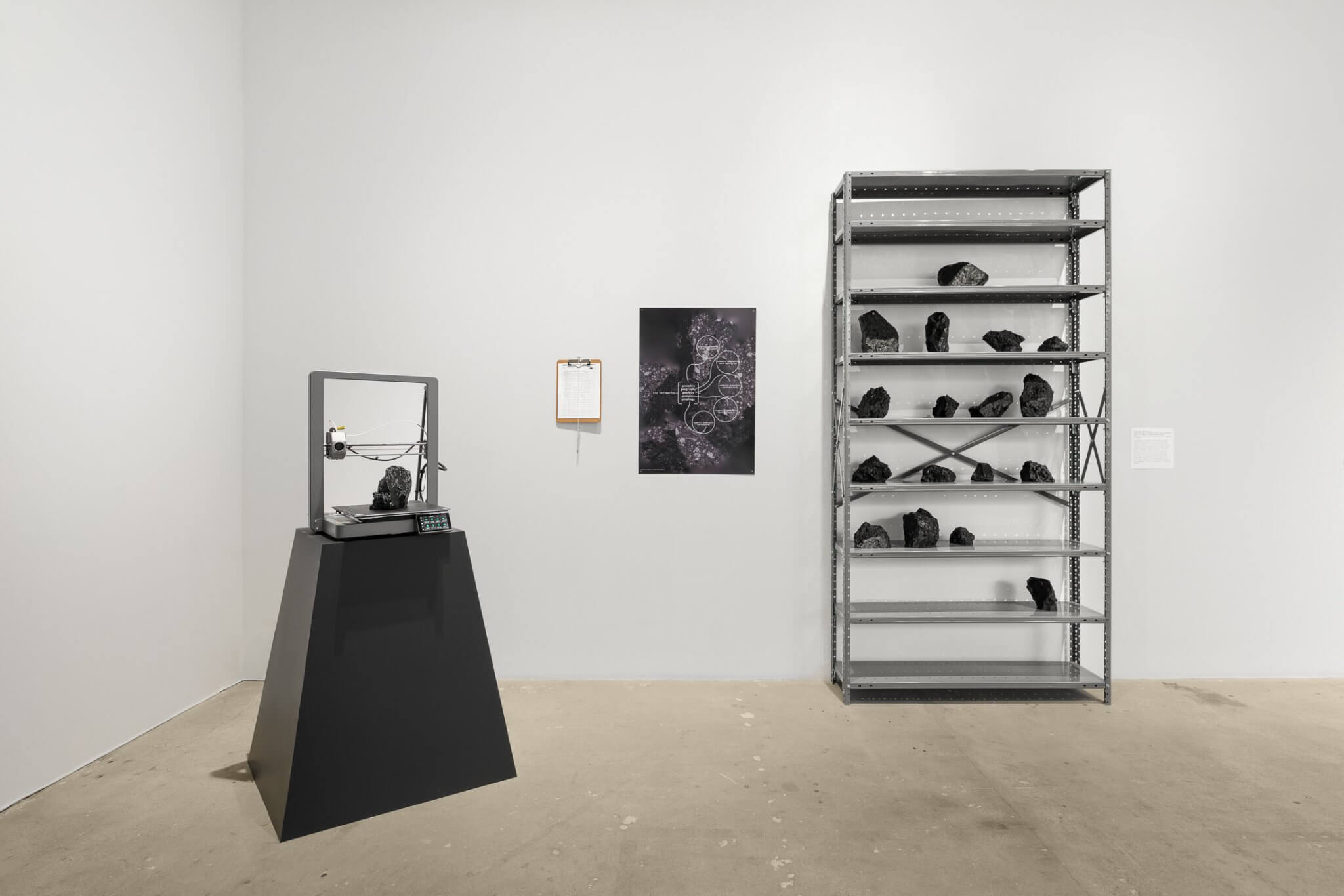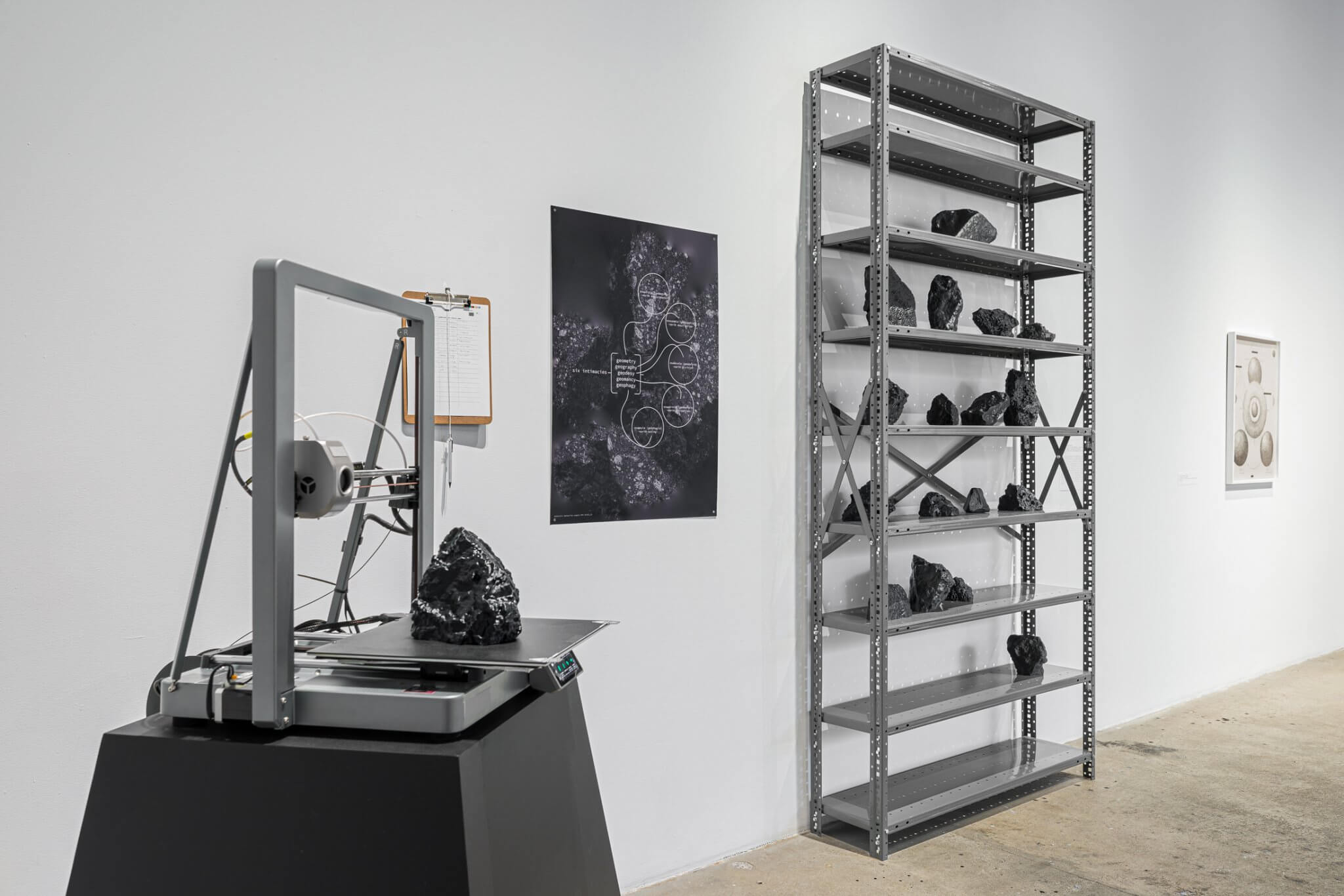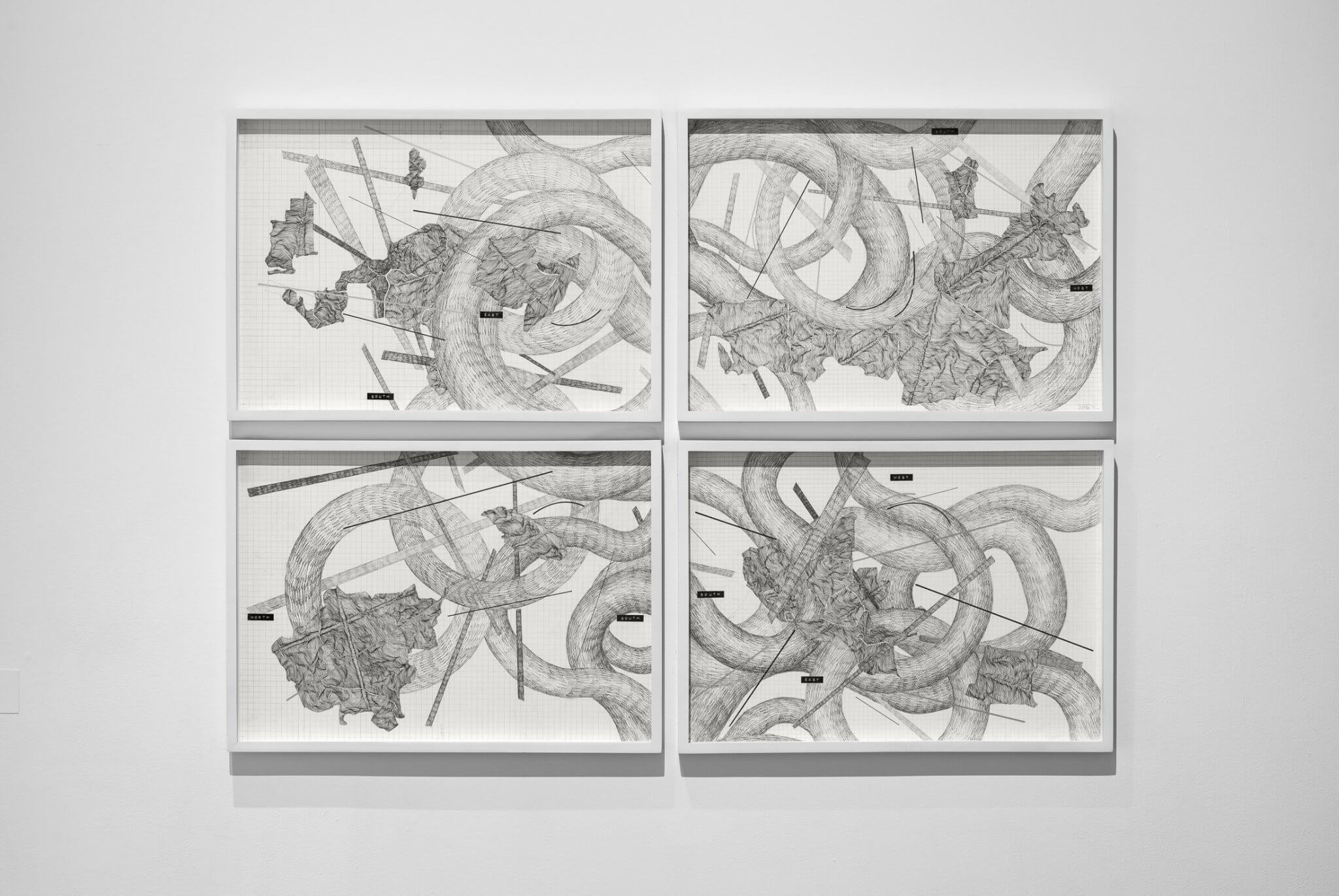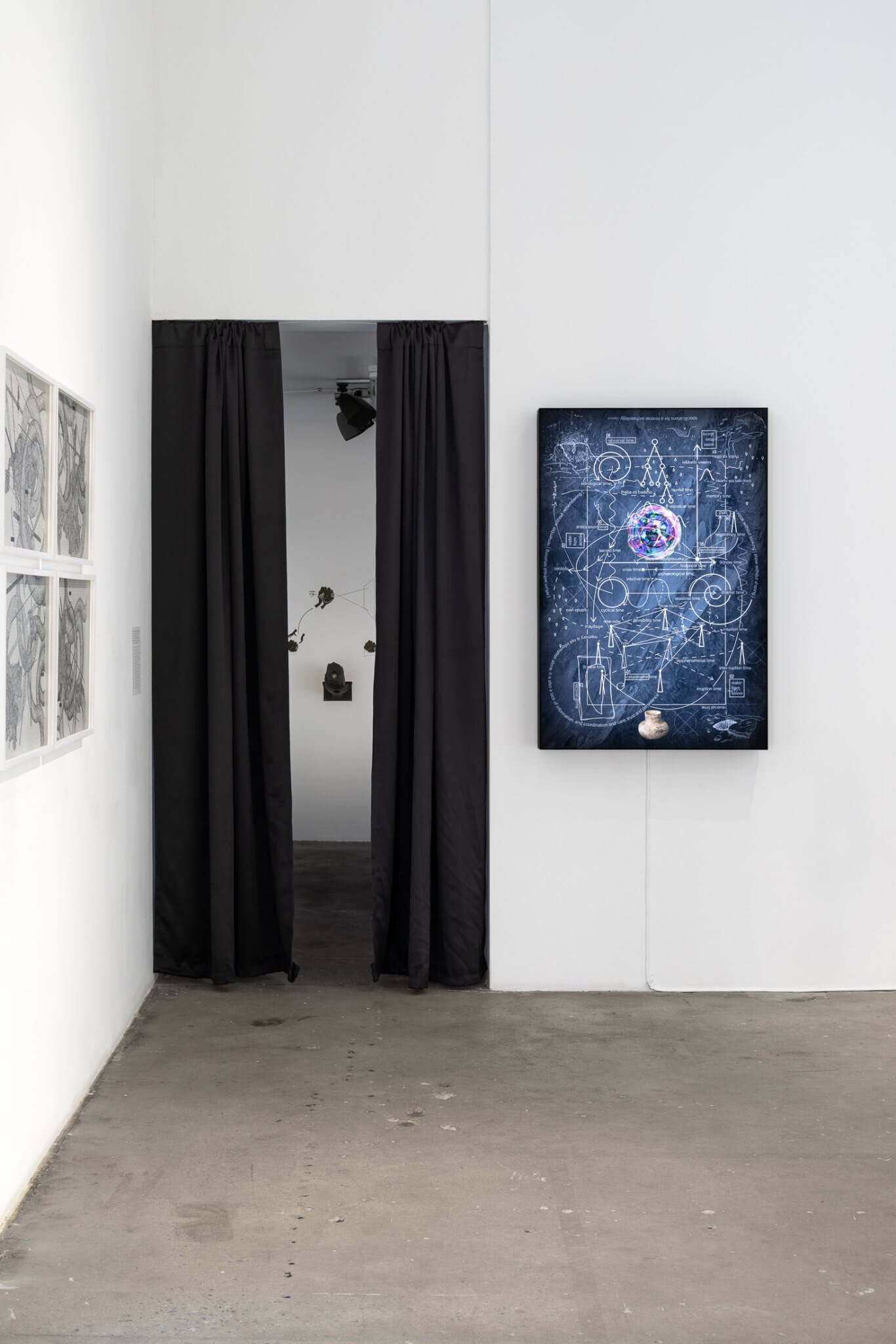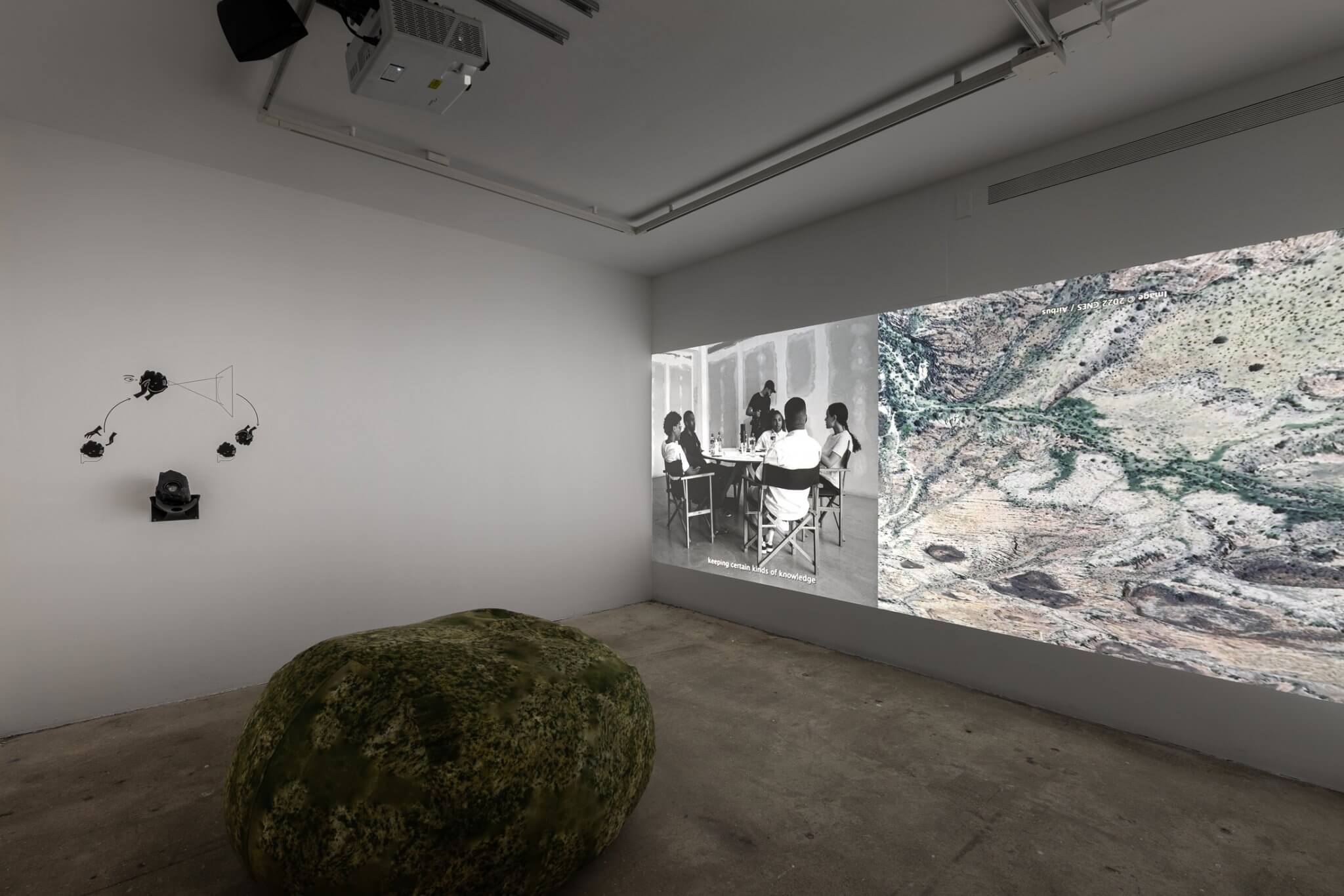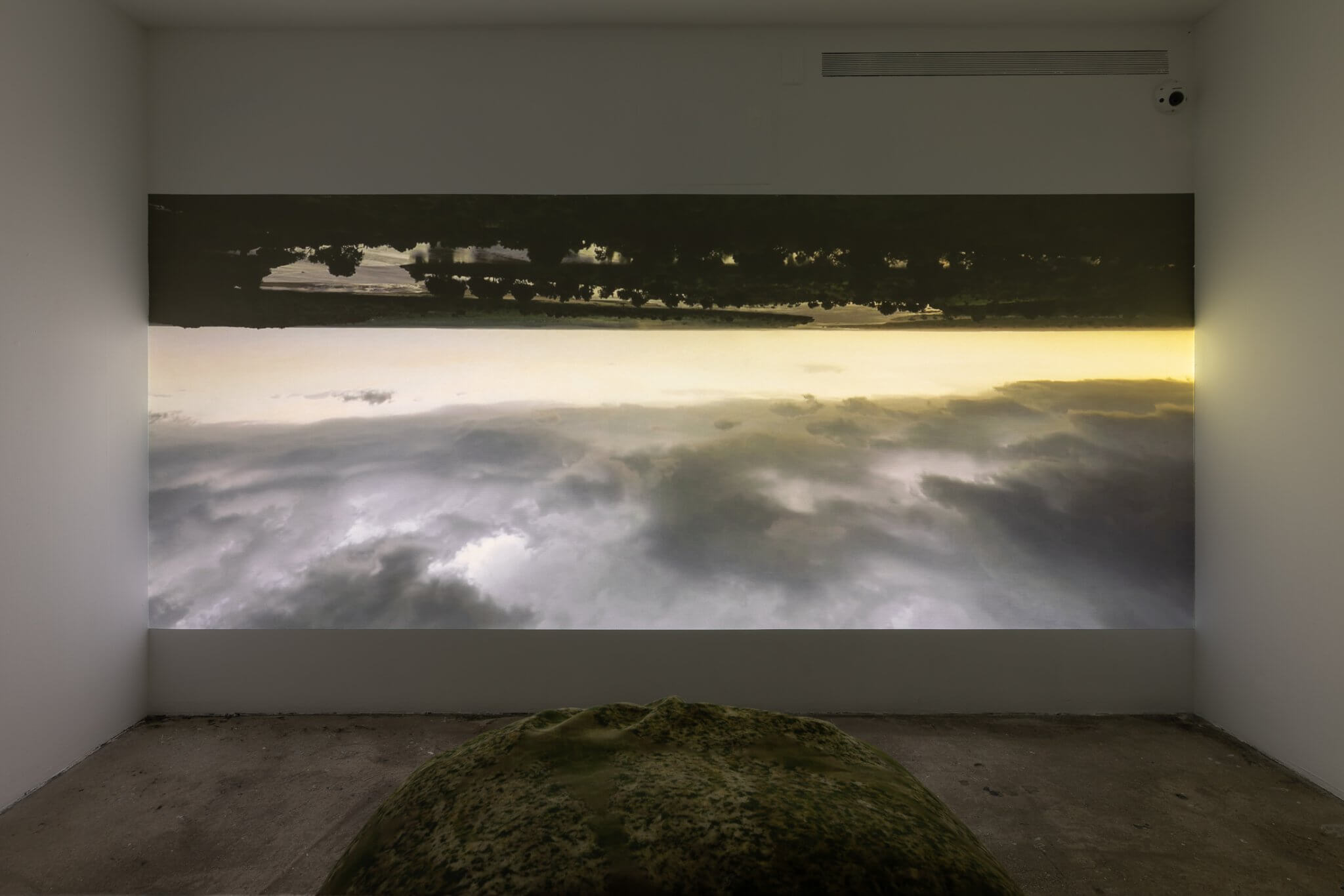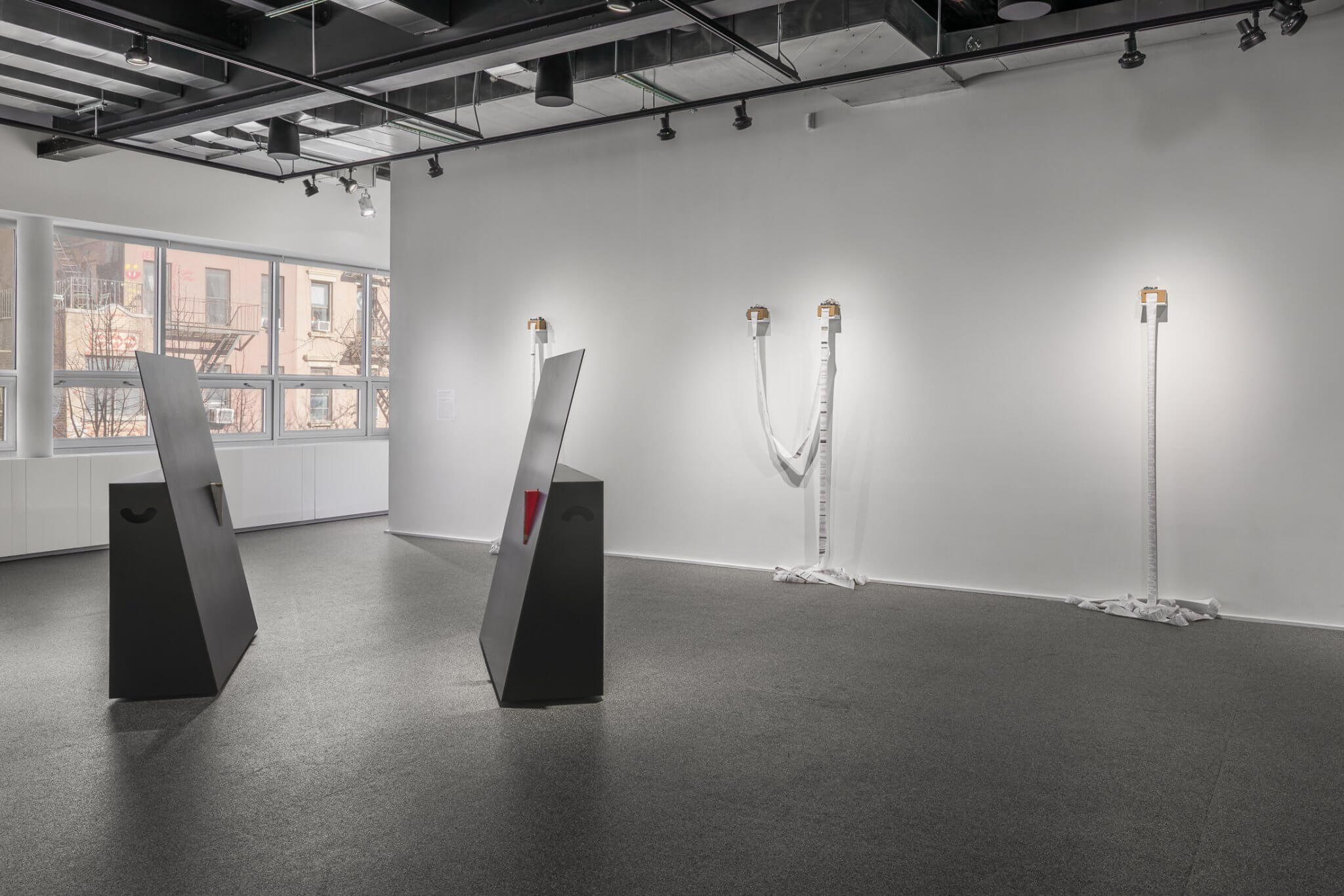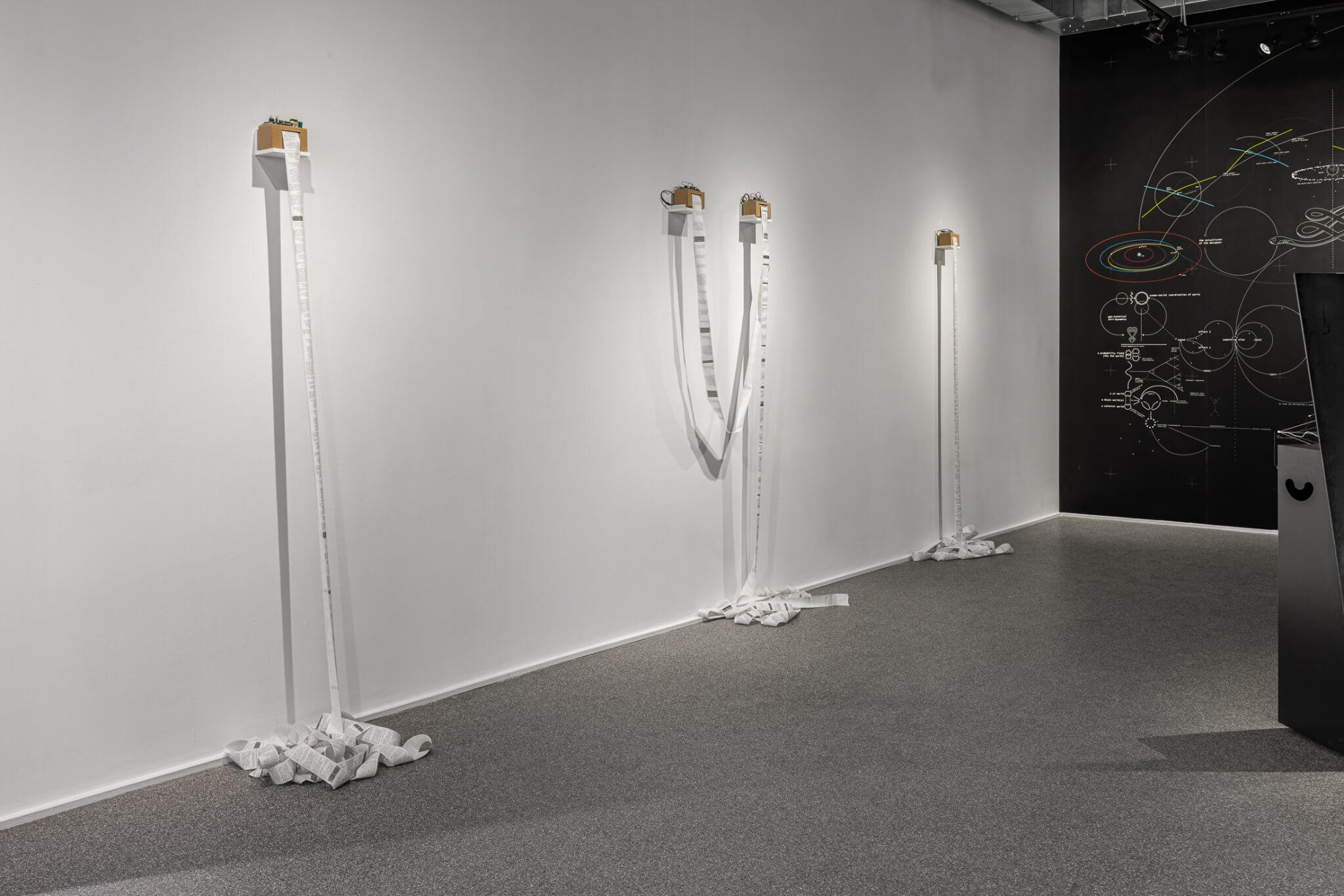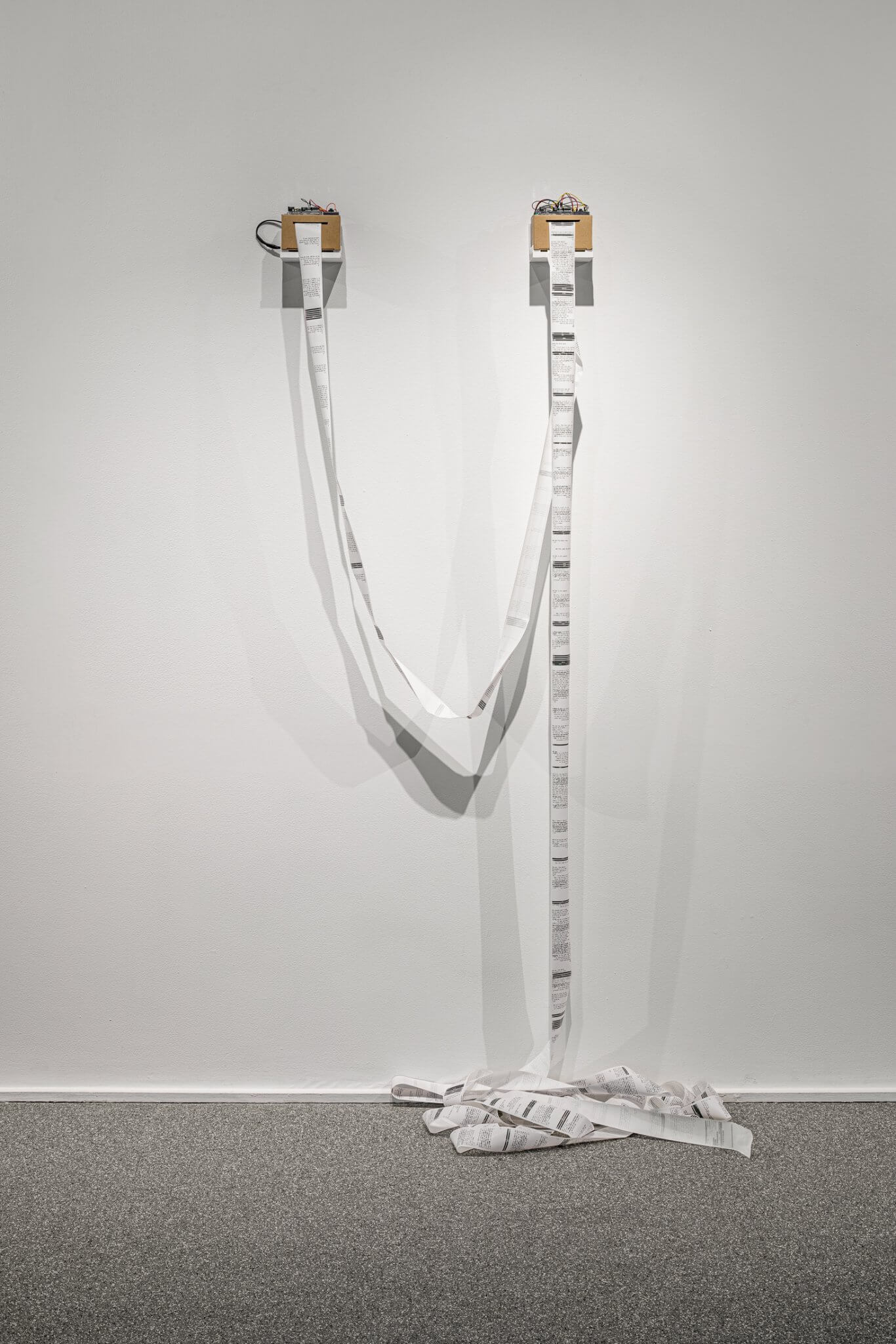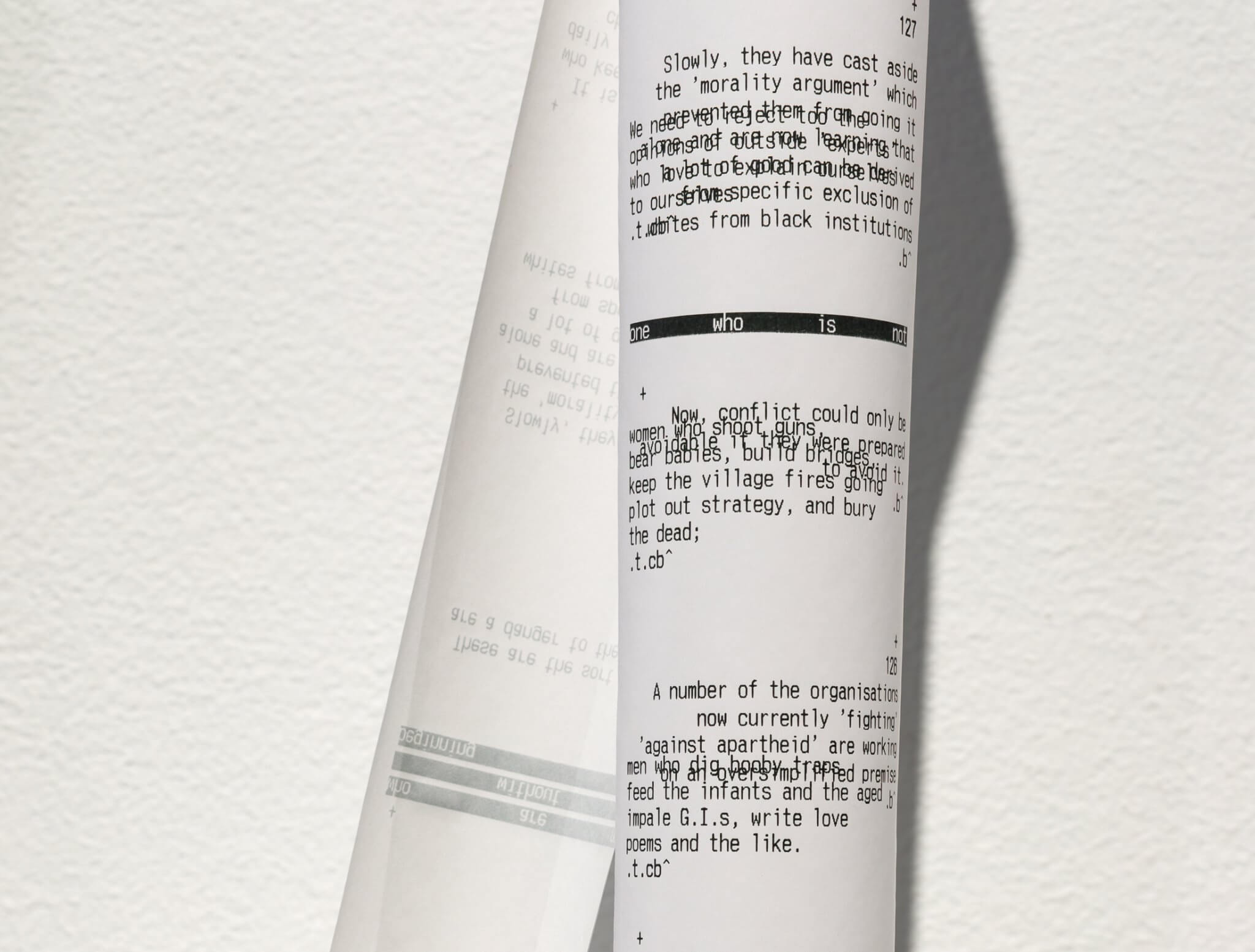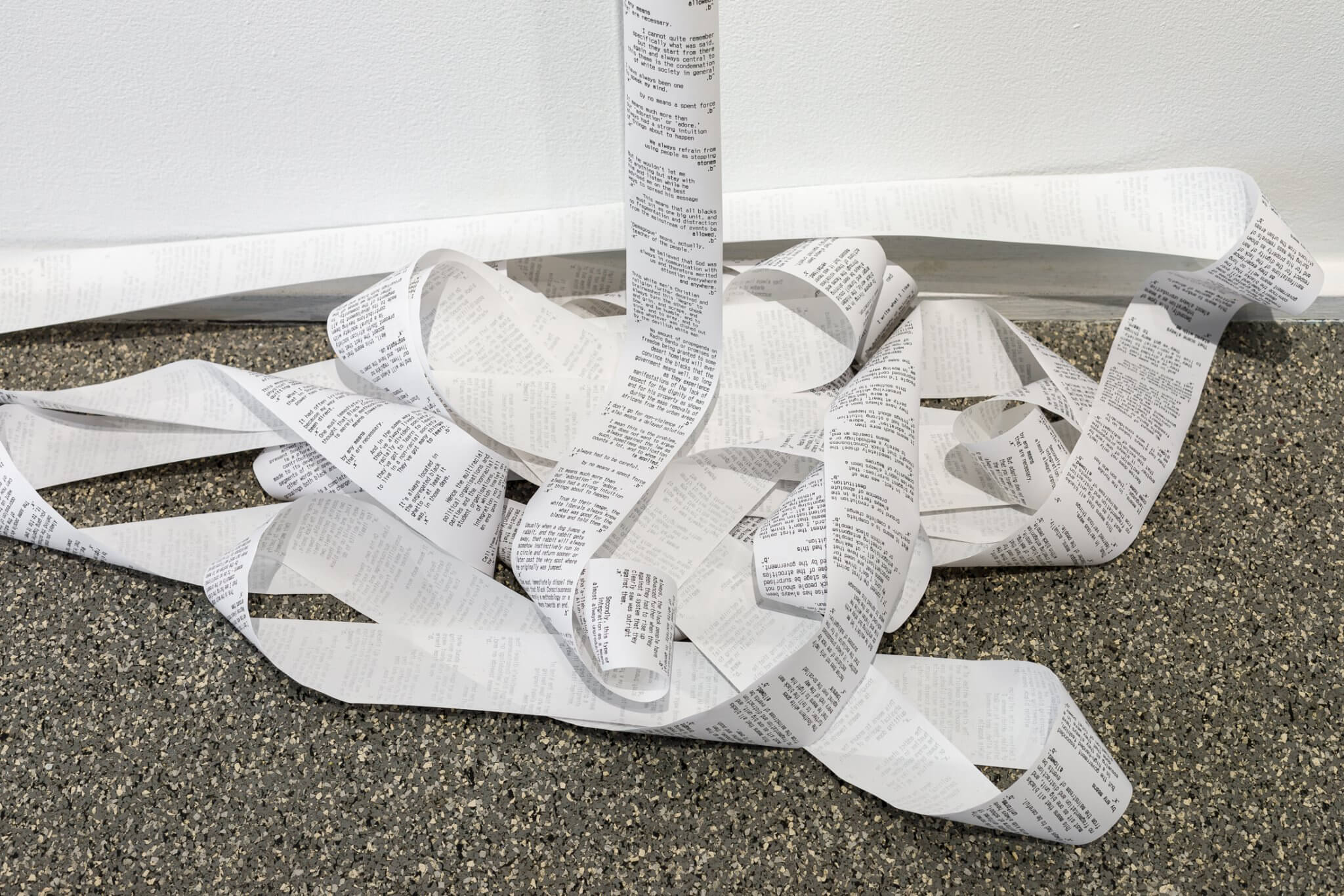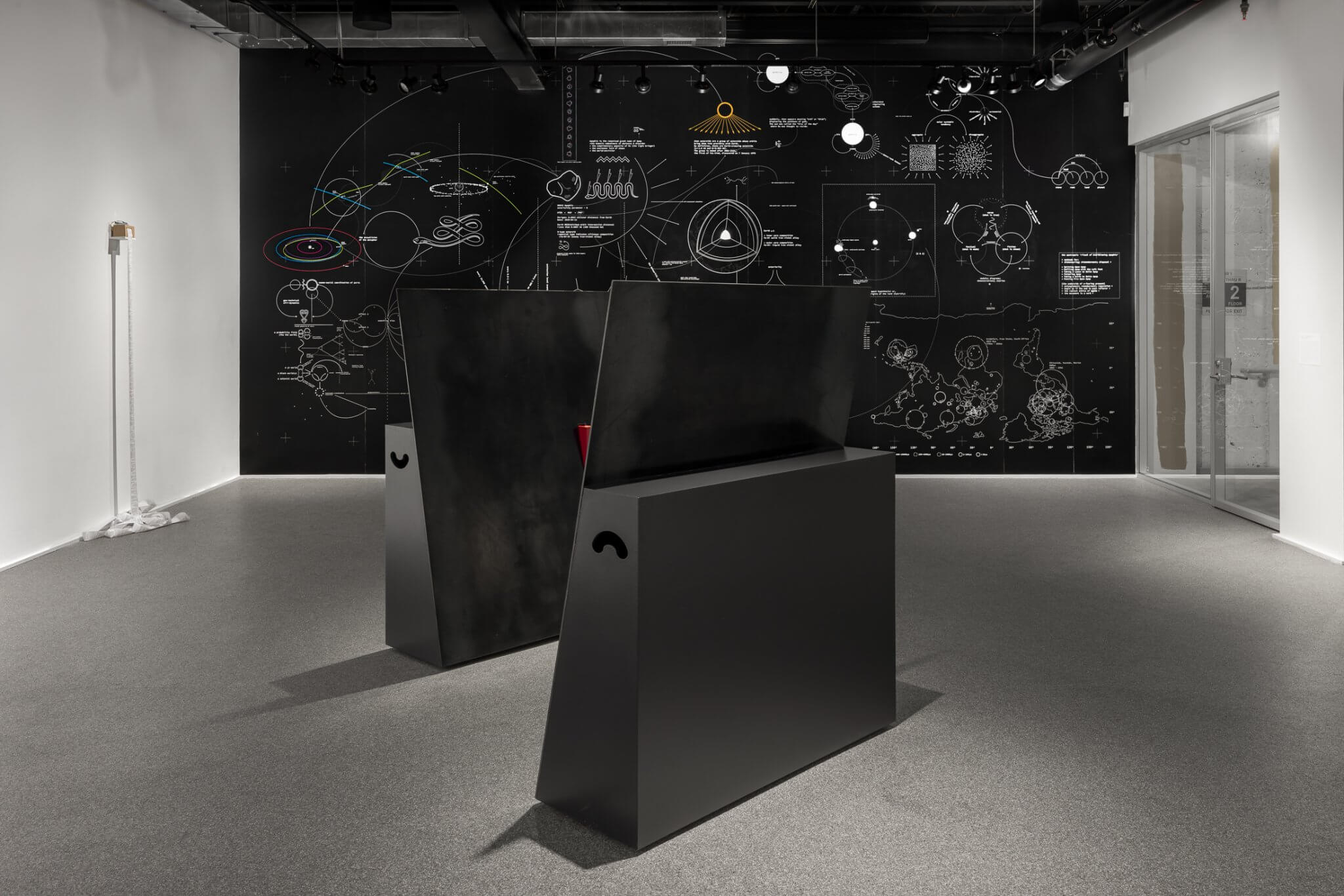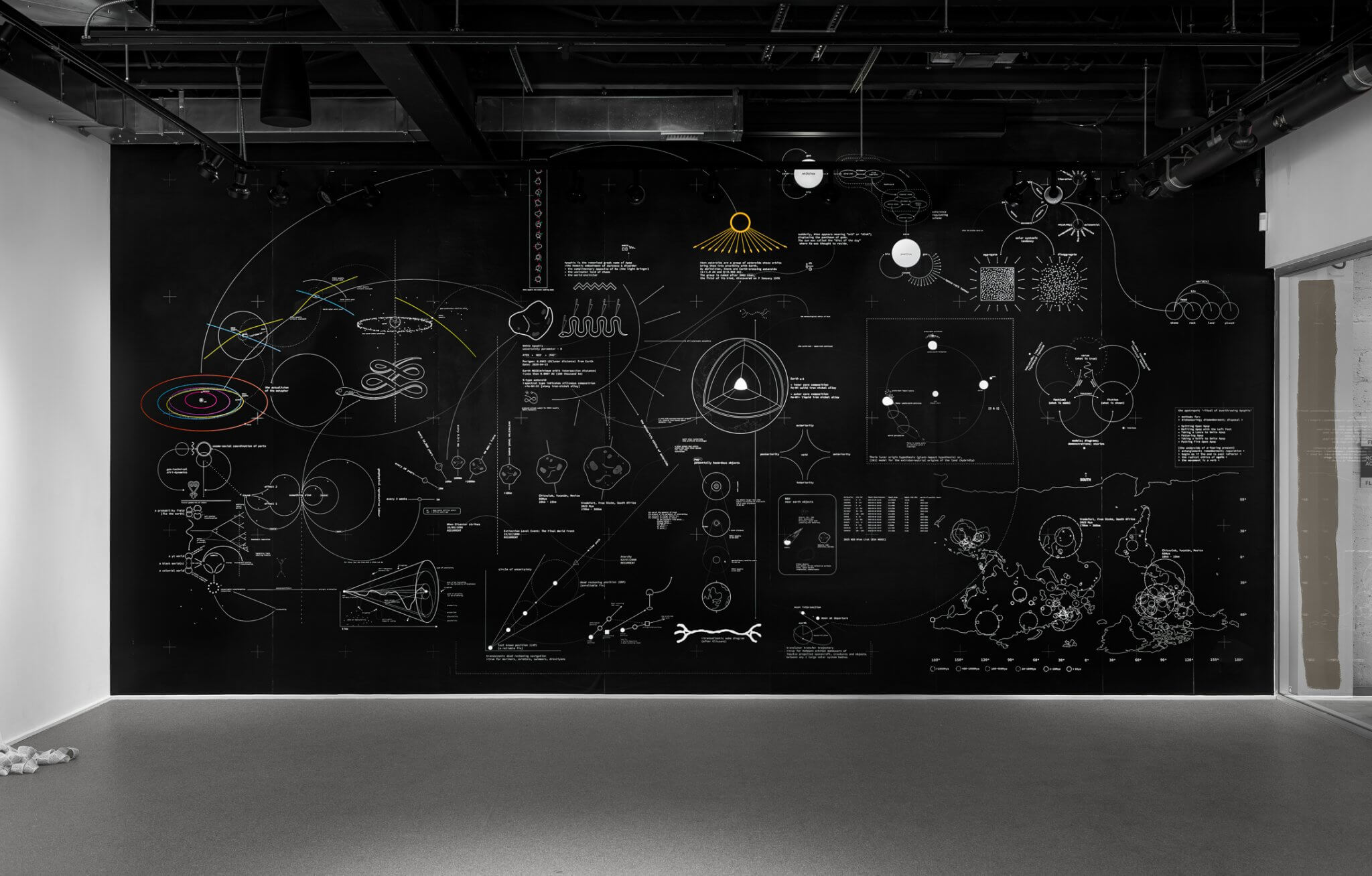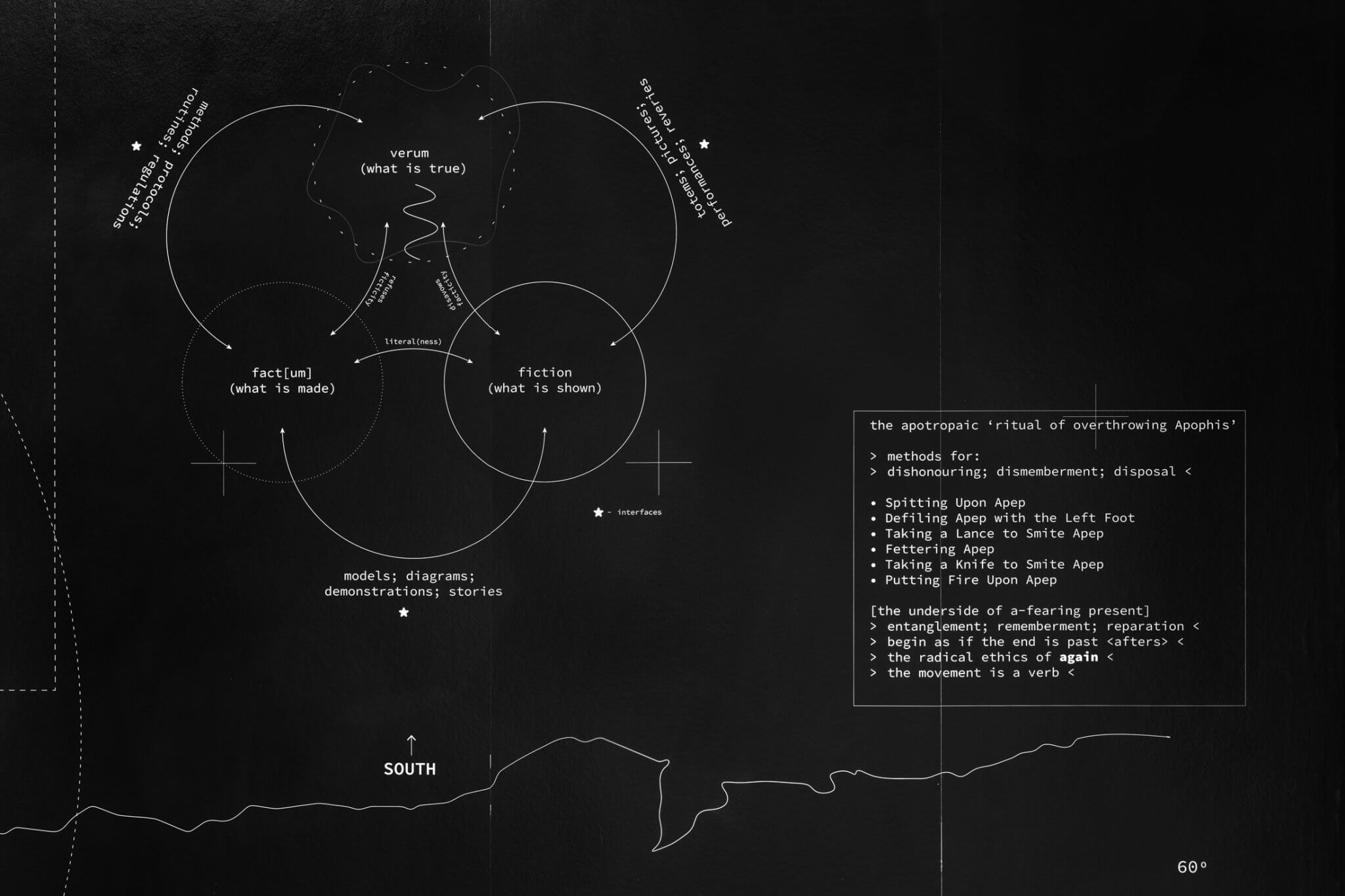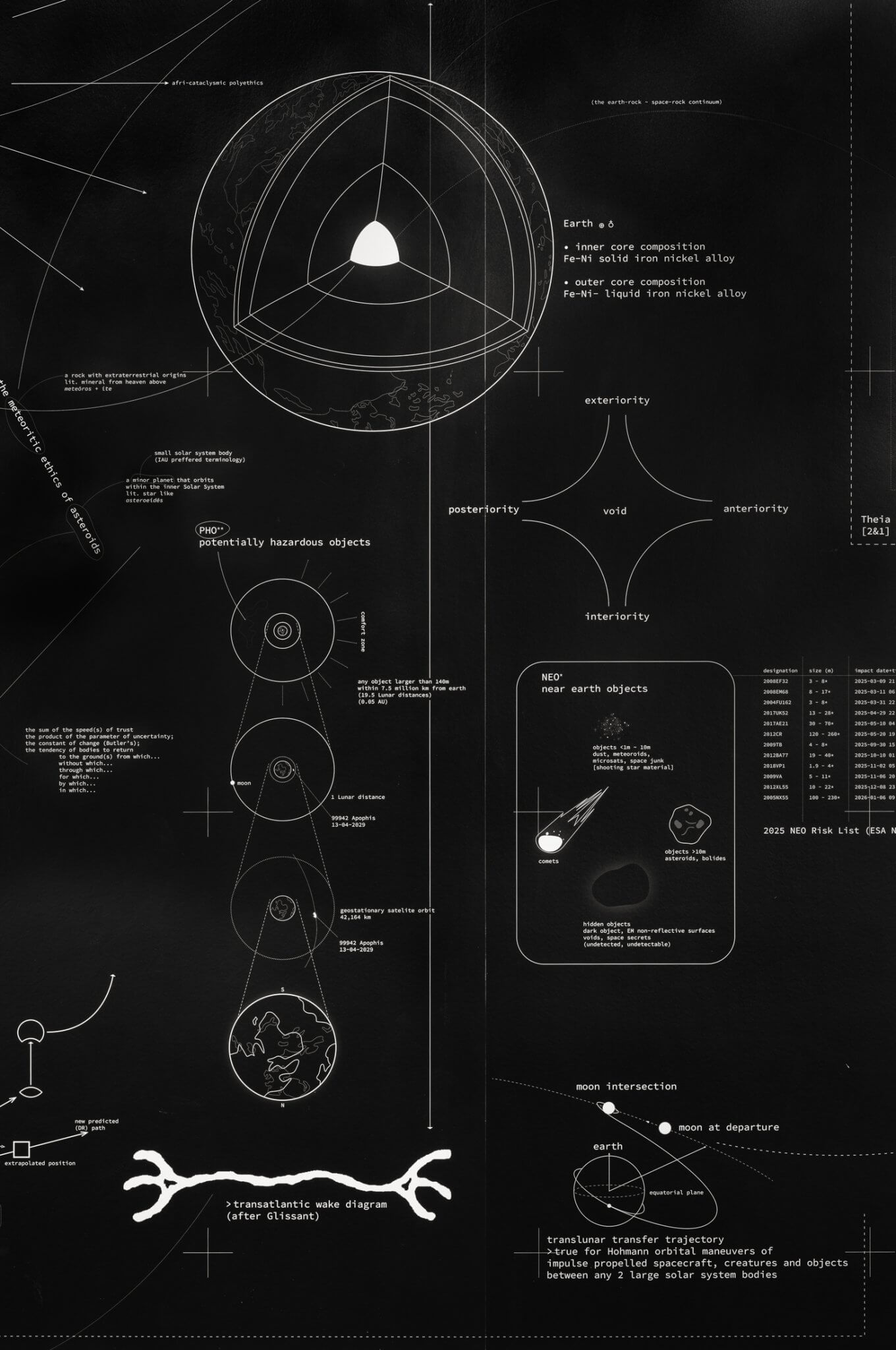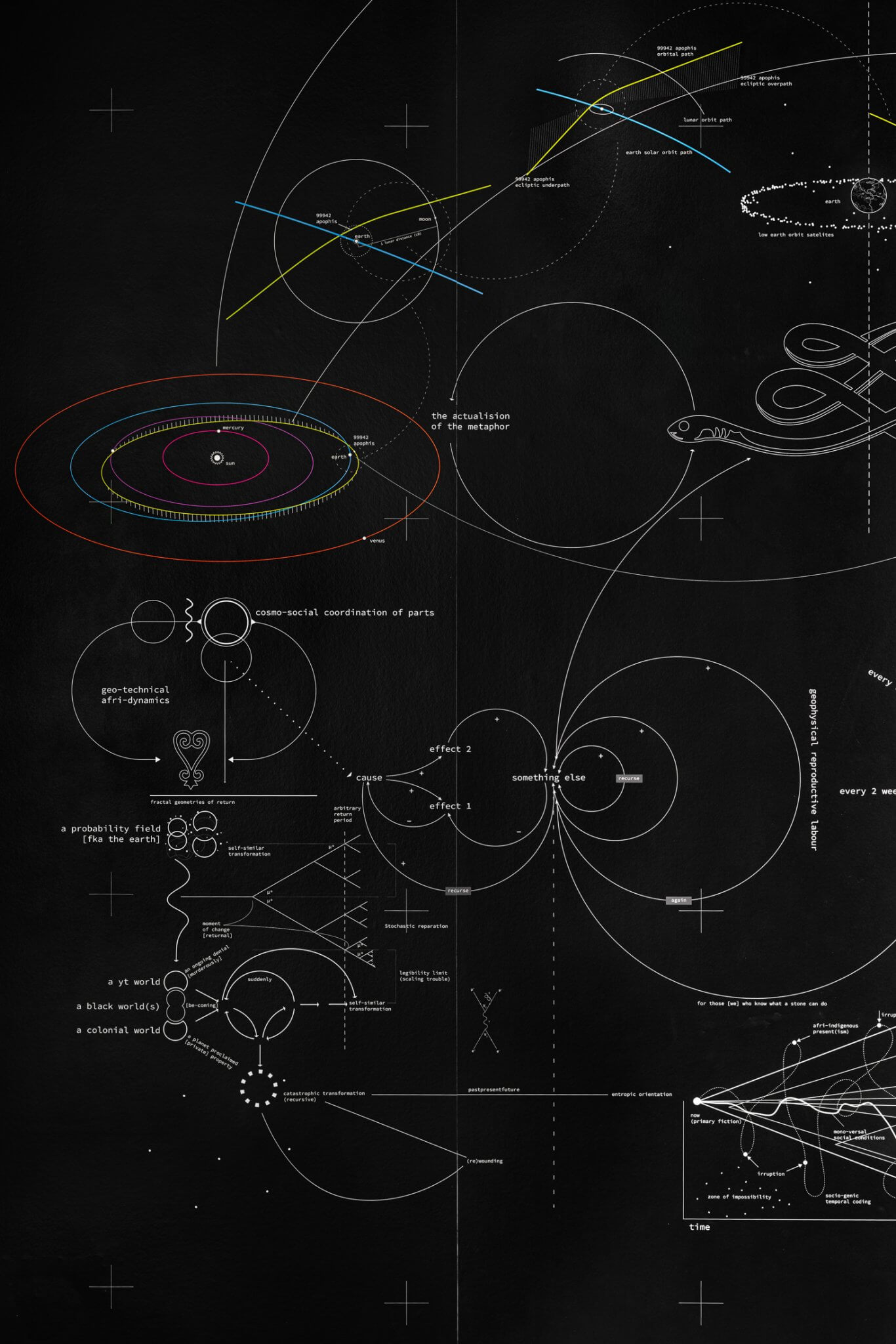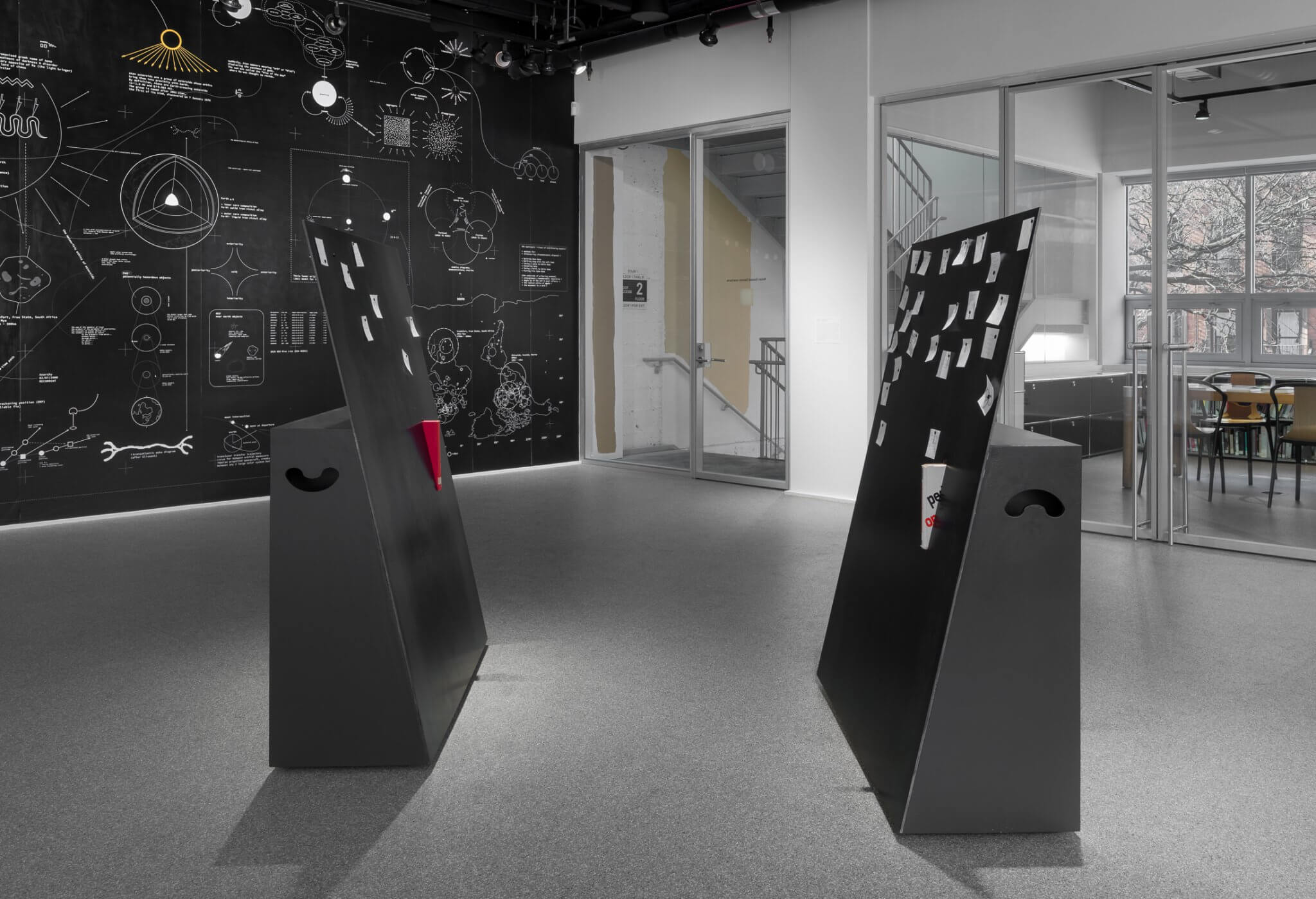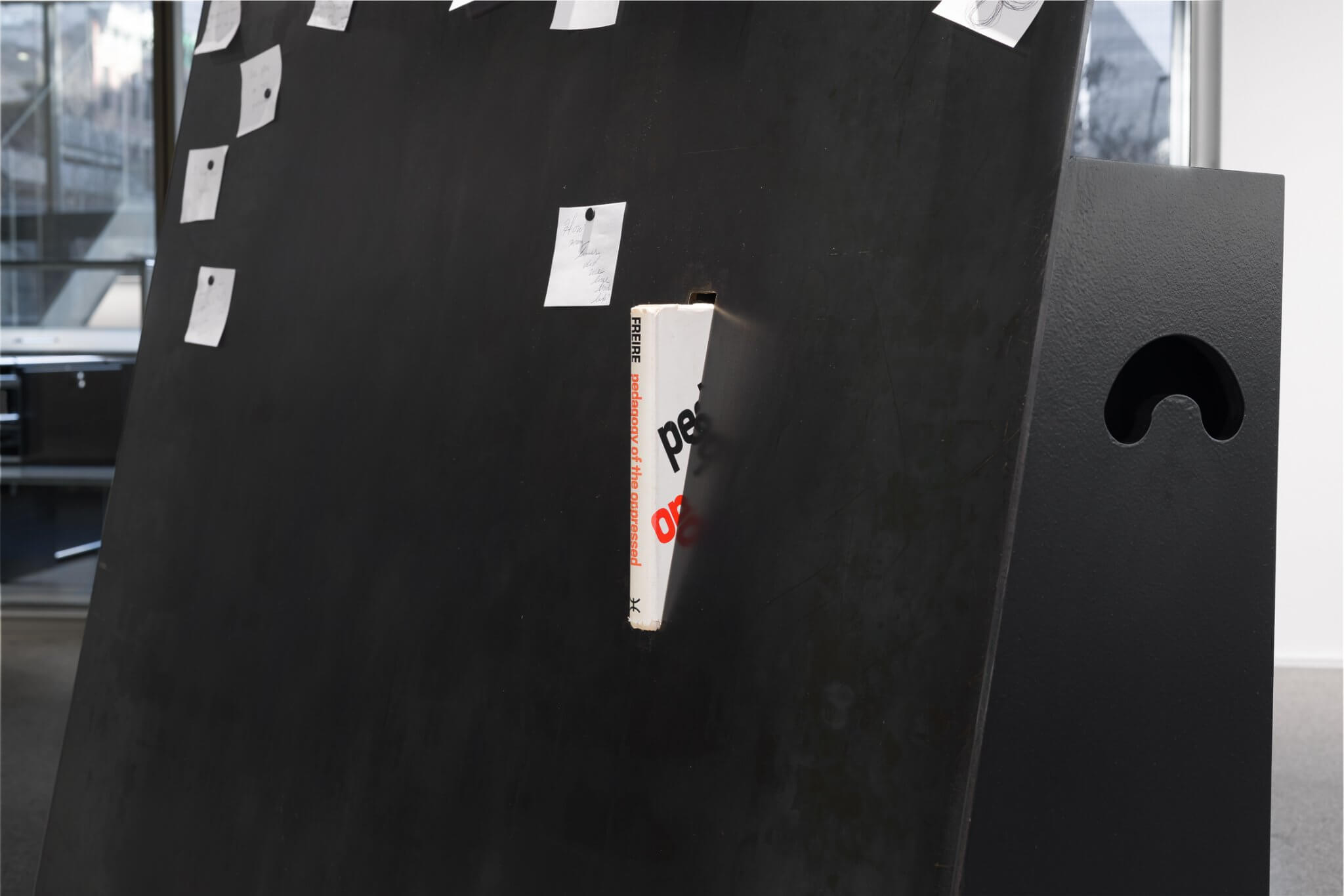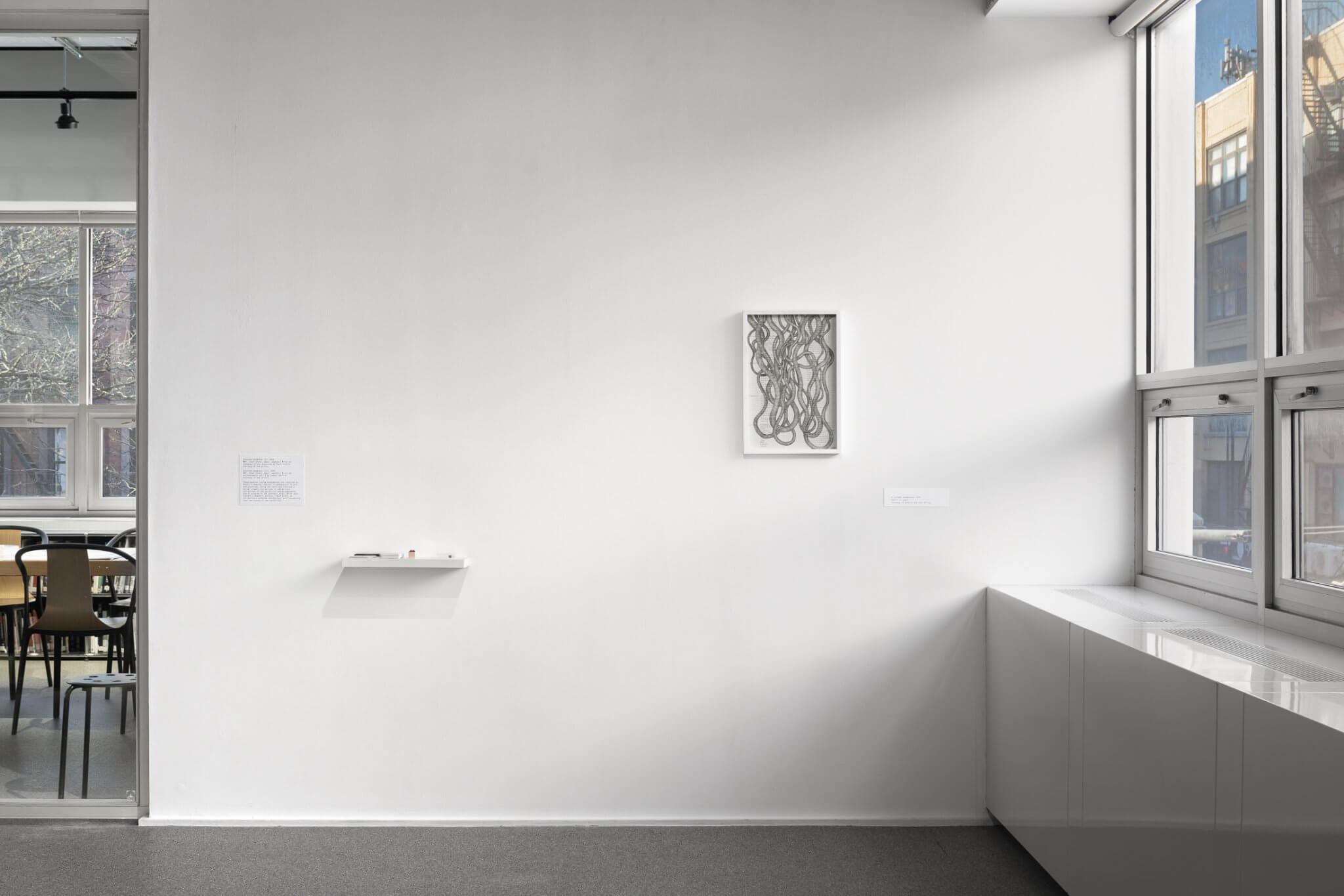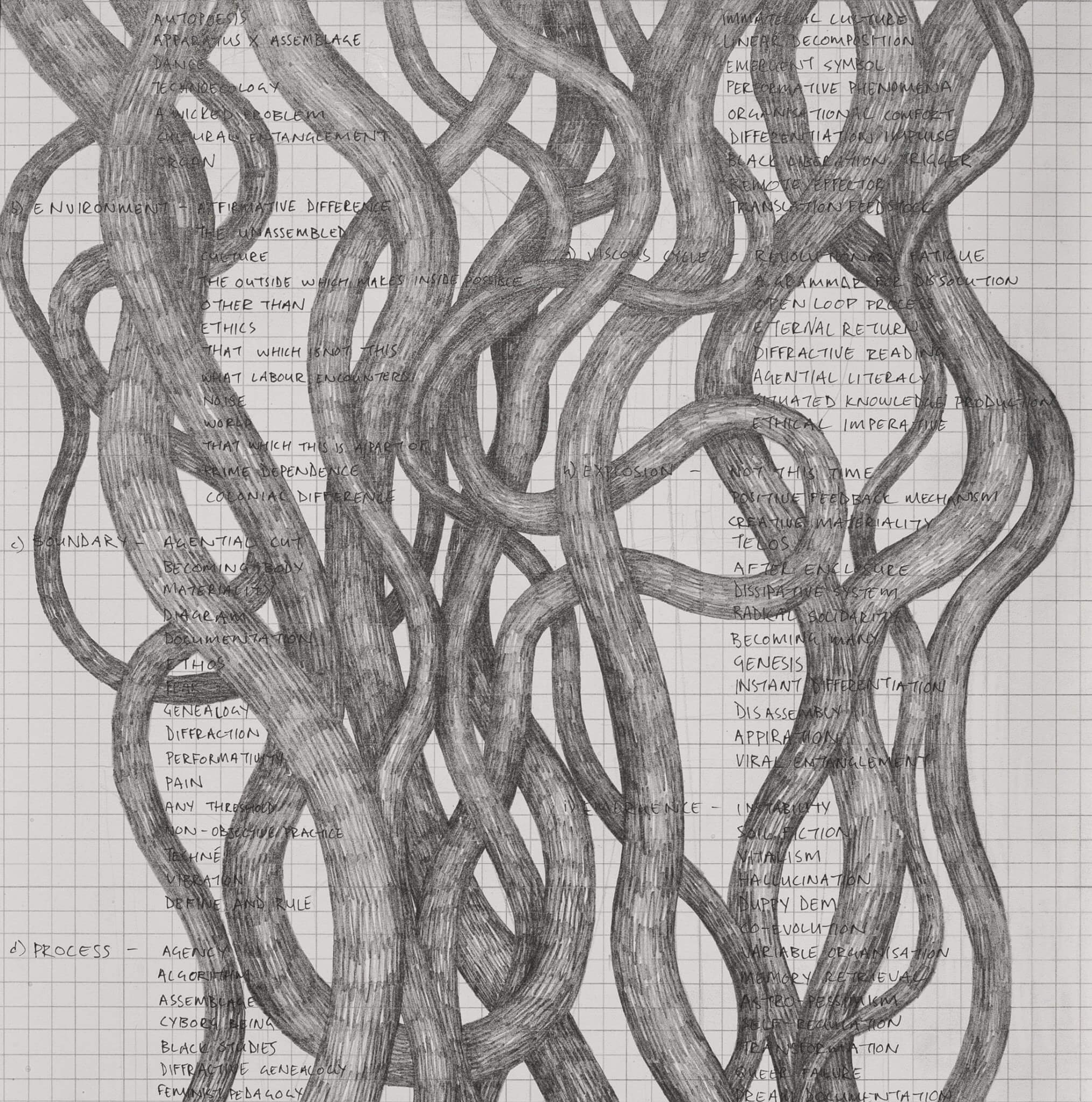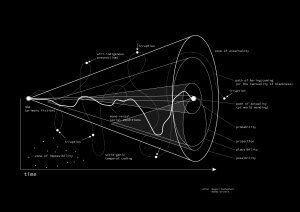Nolan Oswald Dennis: overturns
Jan 22 - Apr 20 2025
Swiss Institute presents overturns, the first institutional solo exhibition in the US by Nolan Oswald Dennis. Dennis traverses the subterrains of what they call a “black consciousness of space,” a multivalent conceptual framework for exploring the material and metaphysical conditions of decolonization. Employing a systems-oriented approach, Dennis interrogates the discourses and practices of Black, queer, and Indigenous liberation.
overturns departs from a pair of conceptual threads in the work of Jamaican philosopher Sylvia Wynter. Lending the exhibition its title, Dennis references Wynter’s call to develop a “new science” that combines the humanities and the natural sciences in order to overturn prevailing Western epistemes.[1] Dennis couples this ethic of disciplinary transgression with a reworking of Wynter’s theory of the “genres” of the human, which argues that the social, economic, and ecological inequities that pervade the global present are the result of the ongoing systemic “overrepresentation” of “Man,” a dominant Western bourgeois genre of being human.[2] For overturns, Dennis advances their notion of the “genres of the planet” to consider modernity’s figuration of the Earth as unified, transparent, and amenable to the proprietary drives of racial capital.
Featured on the ground floor at SI are the latest iterations of ongoing bodies of work that model the spatiotemporal antagonisms between the racialized, propertied world and heterogenous Black and Indigenous imaginaries that dynamically co-exist with, under, and against this world. Black Liberation Zodiac (Kgositsile’s Folly) (2022-ongoing) remaps the night sky across the ecliptic plane from the position of an observer located in the southern hemisphere. Presented alongside a video featuring interviews with an African astrophysicist and other interlocutors, the work is composed of a monumental infinity curve that substitutes the symbols of the standard Eurasian Zodiac constellation with iconography drawn from a global archive of militant and anti-capitalist Black liberation struggles. Moving from celestial to terrestrial realms, Isivivane (2023-ongoing), developed in conversation with geologists and geology museum curators, intervenes into discussions on restitution by creating digital and physical simulations of collected rock samples from various settler colonial contexts. Specifications for a Reverse Archaeology (2022-23) is comprised of a single-channel film, a lightbox diagram, and custom pillow seating inspired by digitized renderings of a sacred landscape in Southern Africa. Through the work, Dennis ruminates on geo-spiritual relations and conditions of landlessness, reimagining the extractivist instruments of archeological science for alternative, potentially liberatory purposes. Other works on the ground floor subject familiar representations of the globe to playful inversions, sequential multiplications, and culturally symbolic rearticulations, challenging universalizing Western scientific claims to planetary knowledge with the unruly suggestion of incessantly produced counter-cosmologies.
The works on the second floor form a pedagogical environment and rehearsal space to prepare viewers for the possible arrival of a decolonized planet. A series of thermal printer sculptures produce dialogues between South African anti-apartheid activist Steve Biko and a range of other bygone, anti-imperialist thinkers such as Amílcar Cabral, Toni Cade Bambara, and Malcolm X. Combining historiographic critique and poetic computation, each of the dialogues are generated by an algorithm that searches for a pair of words within the texts and speeches of these Black radical figures. Nearby, the newly commissioned wall diagram, recurse 4 a late planet (lush) (2024) utilizes African fractal geometries, mathematical abstractions, astronomical symbols, and lyrical annotations to reflect on the systemic logics that reproduce the world’s social hierarchies and exclusions. Over the course of the exhibition, a pair of specially designed shelves, inspired by library furniture, will gather written notes and reflections by visitors to SI.
overturns is accompanied by The Black Earth Study Club, a series of transdisciplinary public programs occurring over four chapters that will reflect on Black metaphysics, anti-colonial pedagogy, digital futures, and land dispossession. Bringing together artists and scholars predominantly from the African continent and its global diasporas, these events aim to create a temporary space of conviviality, sociality, and collective learning.
On the occasion of the exhibition, SI together with Zeitz MOCAA, Cape Town and Koenig will publish the first ever monograph on Dennis’s practice in April 2025. The publication will feature newly commissioned contributions by KJ Abudu, Renée Green, Thato Mogotsi, and Zoé Samudzi, and reprinted texts by a global constellation of artists and theorists whose work inform Dennis’s research.
This exhibition is organized by KJ Abudu, Assistant Curator, Public Programs and Residencies. Special thanks to Alison Coplan, Chief Curator.
Nolan Oswald Dennis: overturns is made possible through support from A4 Arts Foundation. SI gratefully acknowledges the Ubuntu circle and additionally wishes to thank Goodman Gallery for production support. The exhibition is presented in partnership with Gasworks, London.
[1] Sylvia Wynter, “The Ceremony Found: Towards the Autopoetic Turn/Overturn, Its Autonomy of Human Agency and Extraterritoriality of (Self-)Cognition,” in Black Knowledges/Black Struggles: Essays in Critical Epistemology, ed. Jason Ambroise and Sabine Broeck, (Liverpool: Liverpool University Press), 2015, 184-252.
[2] Sylvia Wynter, “Unsettling the Coloniality of Being/Power/Truth/Freedom: Towards the Human, After Man, Its Overrepresentation – An Argument,” The New Centennial Review, Vol. 3, No. 3, Fall 2003, 257-337.
Nolan Oswald Dennis (b. 1988, Lusaka, Zambia) lives and works in Johannesburg. Dennis holds a B.Arch from the University of the Witwatersrand and an MS in Art, Culture and Technology from the Massachusetts Institute of Technology. They are a founding member of the artist group NTU; the Indexing Literacy Program; and the convenor of Black Earth Study Club. Recent solo exhibitions include understudies, Zeitz MOCAA, Cape Town (2024); geo-logics, Kunstinstituut Melly, Rotterdam (2024); and a recurse 4 [3] worlds, Back wall project, Kunsthalle Basel, Basel (2023). Recent group exhibitions include Traces of Ecstasy, Institute for Contemporary Art at Virginia Commonwealth University, Richmond, Virginia and Lagos Biennial Fourth Edition, Lagos (2024); Cinema Cosmos, 14th Shanghai Biennial, Shanghai (2024); Memory is an Editing Station, Biennial SescVideobrasil, Sao Paulo (2023); and THIS TOO IS A MAP, Seoul Mediacity Biennale, Seoul (2023). Dennis is the 2016 winner of the FNB Arts Prize and the 2023 Videobrasil Jury prize. Their writing has been published in academic and art publications including The Funambulist, CLARA Architecture/Recherche Journal, Unearthing Traces, and Mater, amongst others. They are currently a Research Associate at VIAD, University of Johannesburg and co-editor of Indexing Imaginaries, Volume 8 of the DATA Browser book series, published by Open Humanities Press (2025).
Image: Nolan Oswald Dennis, recurse 4 a late planet (lush), 2024, (detail).
Video by Nate Reininga.
Related Events
- Black Earth Study Club | Cosmo-Computation with Bogosi Sekhukhuni and Ezekiel Dixon-Romàn
- Black Earth Study Club | Land as Verb with Andros Zins-Browne, Kyle Mays, Quito Swan, Saba Innab and Zoé Samudzi
- Black Earth Study Club | Languaging the End of the World with Denise Ferreira da Silva and J. Kameron Carter
- Black Earth Study Club | Militant Education with Sónia Vaz Borges
- Black Earth Study Club | Speculative Diagramming Workshop with Kameelah Janan Rasheed
Press
- Nolan Oswald Dennis: overturns | Art in America
- Nolan Oswald Dennis: overturns | Hyperallergic
- Nolan Oswald Dennis: overturns & Deborah-Joyce Holman: Close-Up | Observer
- Nolan Oswald Dennis: overturns | ArtReview
